Thank God
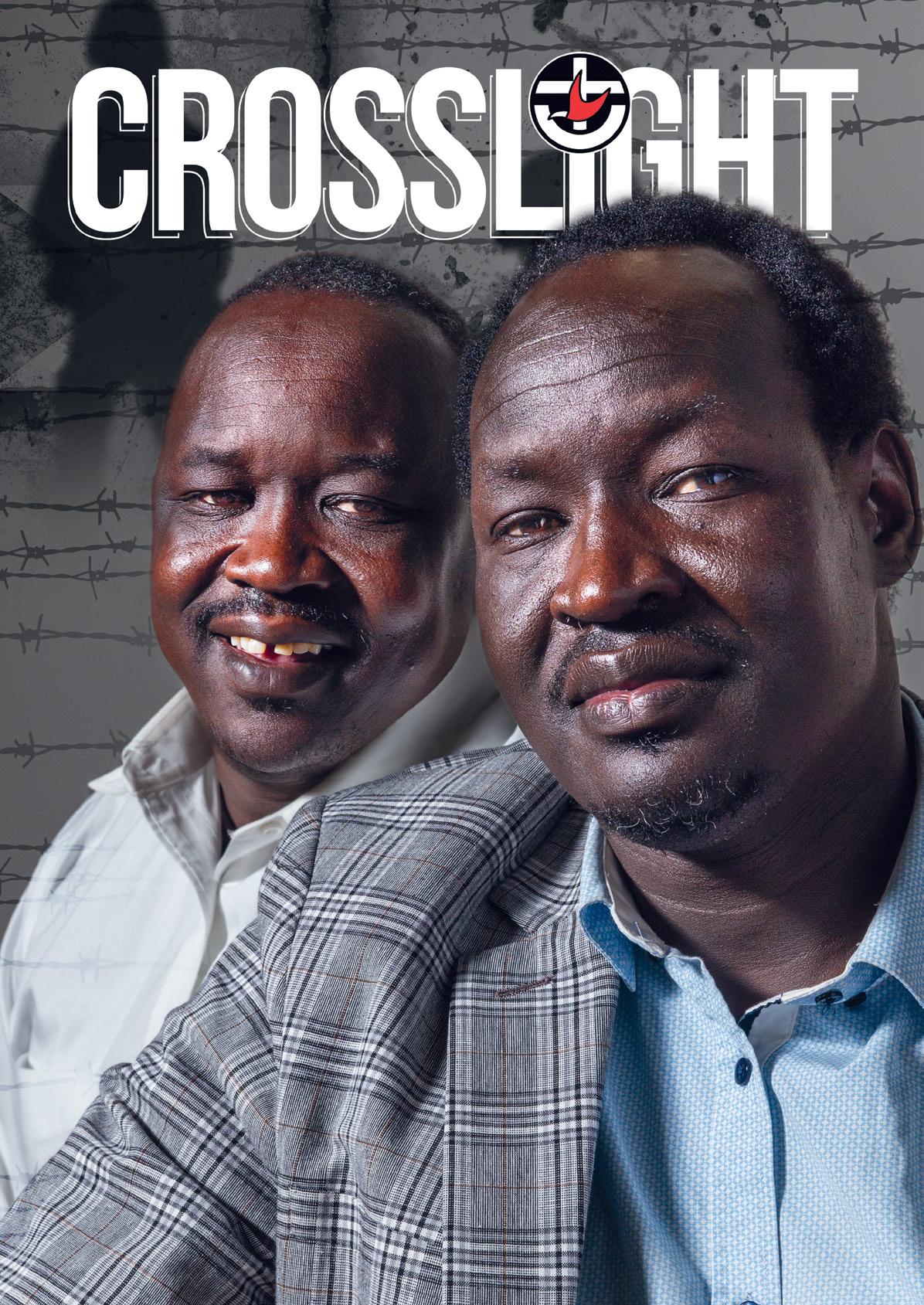
AUGUST 2023
“I’m not rich in having millions of dollars, but I’m rich in that I’m still alive.”
P10
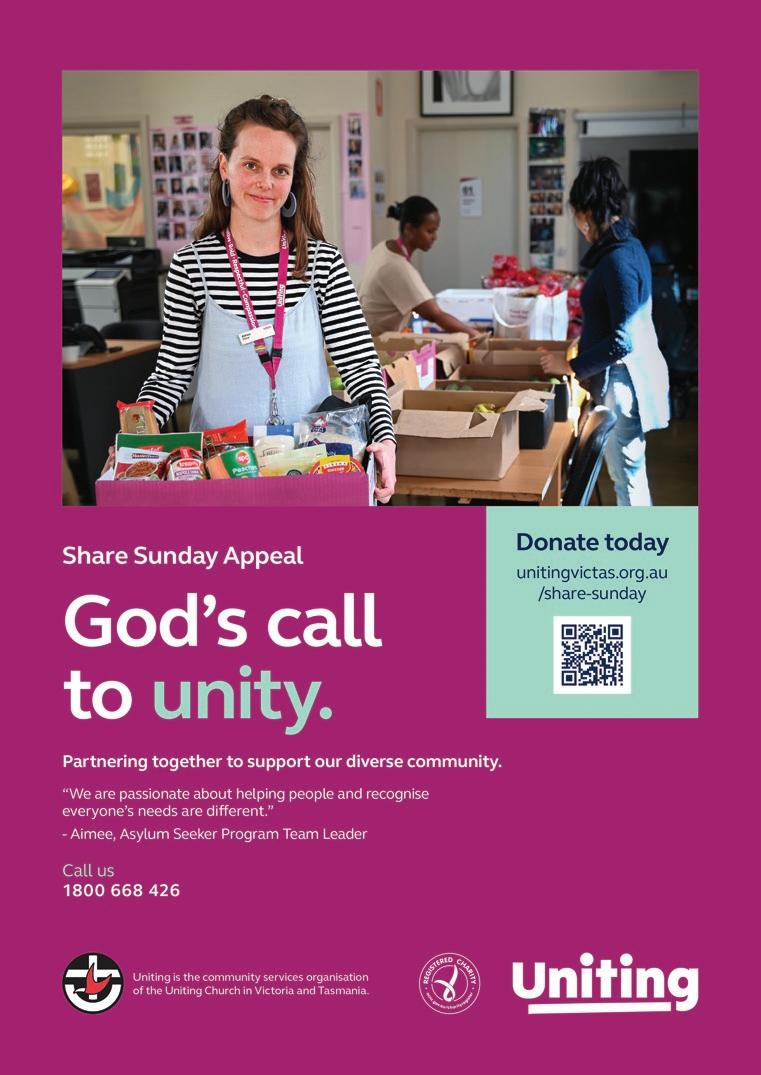 Reverend David Fotheringham Moderator Vic Tas Synod
Reverend David Fotheringham Moderator Vic Tas Synod
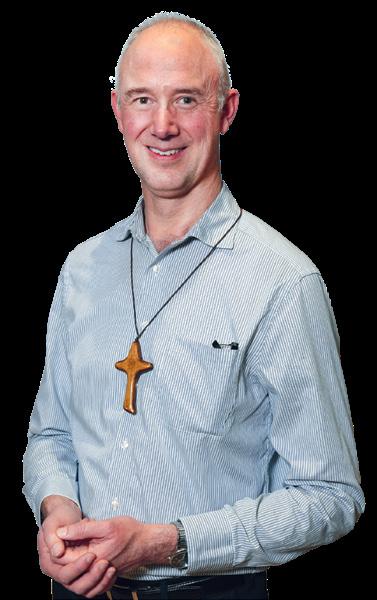
The weekly Bible readings in the lectionary recently included the Matthew 10 story of Jesus calling together a groups of apostles, authorising them and sending them out in mission.
Matthew notes that among them are an Indigenous person, a person who worked for the Romans, a person who would betray Jesus, and more. Like the 72 who are sent out by Jesus in the parallel reading in Luke 10, they are to travel lightly.
Their work is to include proclamation and healing: in UCA terms we could say that they go to worship, to bear witness, and to serve. In the context of the reading the worship is assumed; Jesus commissions them for bearing witness and serving.
On a recent trip around Western Victoria I had the opportunity to see many great activities across the breadth of the church. In Nhill, I saw a congregation in a small community welcoming new children in a space that joined the worship and community spaces together. In Horsham, I saw a regional centre which had been fitted out with technology through which they could engage in active connection with others online. In Hamilton, I visited a church-connected school where I was able to talk with the students and share in the installation of a new Principal. In Ballarat, I met a number of amazing people working for Uniting and saw something of the breadth of their work, along with members of the congregation’s Local Engagement Group.
These are great examples of the life of the church, and there are so many more: the Korean Church of Melbourne
celebrating 50 years this year; networks of smaller congregations sharing resources; and communities of faith who gather regularly online.
The national Act 2 project has now released a report featuring a review of the ways that local communities of faith are supported, and of the structures of our governance and resourcing, so that our burdens and capacities can be well matched. Ultimately this will help to lighten burdens where they have become challenging to our missional call – where the burdens have become too heavy for the “travelling lightly” that Jesus invites.
The purpose is to look beyond ourselves towards worship, witness and service, and to our response to Jesus’s commissioning for the world God so loves: the peoples, the land, and the whole creation.
The varieties of expression of the church that I’m seeing in my travels include signs of the possibilities for worship, witness and service into the next decade and beyond. As part of the Faithful Futures project I’m appreciating opportunities to engage with people from across Victoria and Tasmania about what’s happening now, and how we might best resource and support the faithful and prophetic witness of the church into the future.
The church is a community built around faith, with an outwards focus. Across the Synod, the vision of “following Christ, walking together as First and Second Peoples, seeking community, compassion and justice for all creation” reflects the outward focus in the story of Jesus sending out the apostles.
3
"The varieties of expression of the church that I’m seeing in my travels include signs of the possibilities for worship, witness and service into the next decade and beyond."
A
week in the l ife Of
Rev Fiona (Fee) Morrison
Resource Minister across the Cradle Coast Cluster in Tasmania
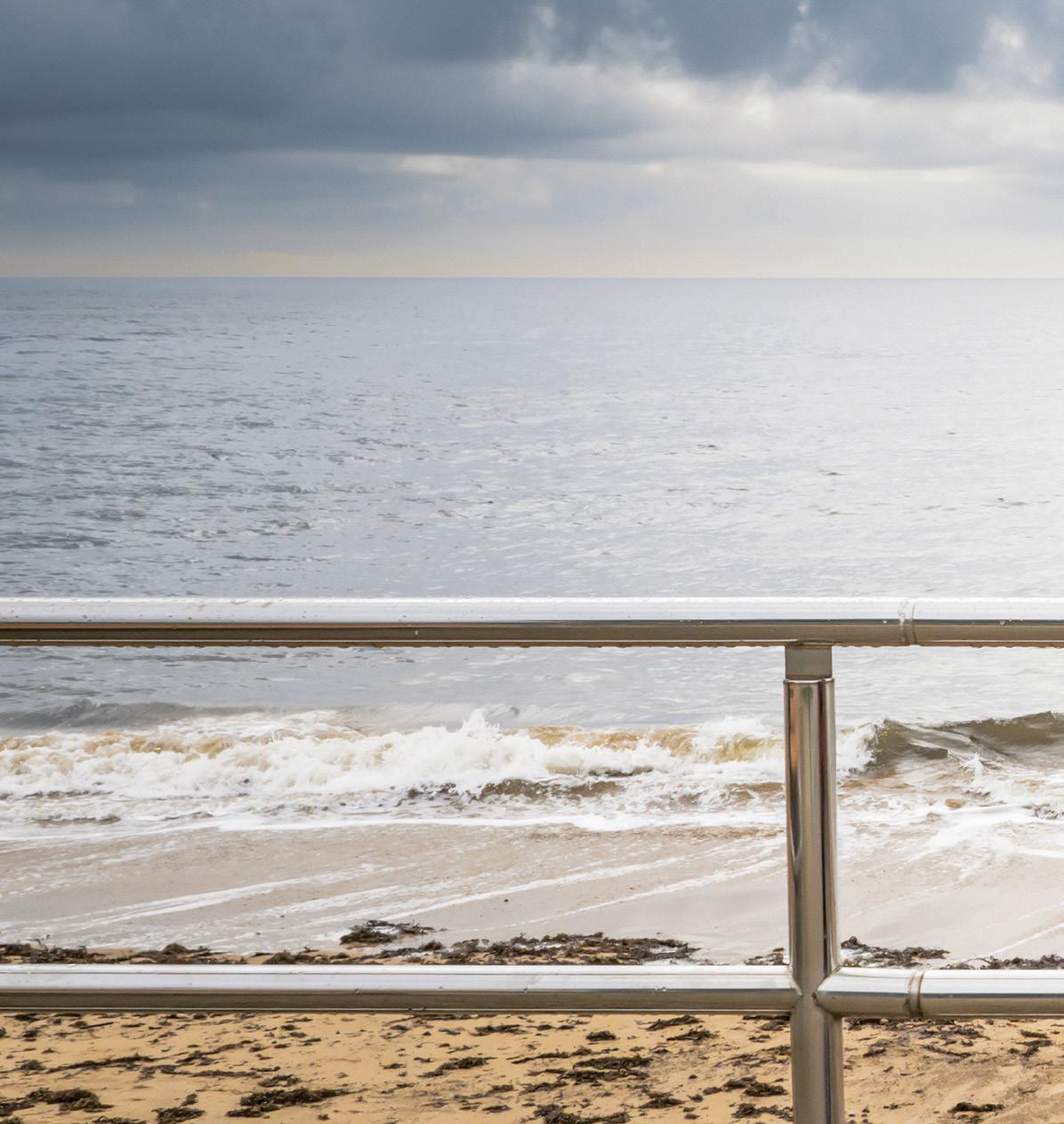
Sunday
While I have my regular and essential morning cup of tea, I re-read this day’s worship service, tweak and make note of any changes in my sermon, remembering that in this service they will receive and discuss the annual report. Arrive and set up worship space. Milly, my chocolate Labrador, is a beloved member of the congregation here, where she provides pastoral care and displays unending hope. We celebrate holy
communion, where all are invited to participate to feast, including Milly.
Share in conversation with people over morning tea, listening to their concerns and joys, which they have named as part of our worship service.
After this, a member of the congregation and I dash off to Devonport to participate in the launch of the Yes ’23 vote as the start of Naidoc week. We join with members of the Devonport congregation, community members, First Nation people and politicians from
all three levels of government. With a wonderful smoking ceremony by a local First Nations person, who I know through our pride community in Devonport, Jodie/Kitty.
Then on to lunch with five others at a local Devonport café to discuss how the Devonport Naidoc week service went and to celebrate with them.
Then time to go home and crash on the couch with Milly and snuggle up in the warmth.
4
Monday
My morning routine of a cup of tea and snuggles with Milly. Then, over my first coffee of the day, I read the start of the third chapter of Sally Douglas’s new book Jesus Sophia. My practice at the moment of learning and reading is to read each day. With most books, I read a chapter a day, but I have discovered with Jesus Sophia, I need to read the chapter over a week to allow it to sink in and wrestle within my being.
Then it is time to head off to Devonport again for the flag-raising at Tiagarra, the keeping place at Devonport for the Six River Nations for Naidoc Week. This is a wonderful event with school children from various schools around Devonport assisting in the flagraising with long ropes – think tug-ofwar and you will get close.
We were welcomed to country by the families who now care for this land and waterways, seeing as the Punnilerpanner people did not survive
the terrible massacres of colonisation in Tasmania. We then shared in morning tea and a wander through the Tiagarra museum and a look at some of their amazing shell jewellery, which is a feature of the women’s art in this area of Lutarita/ Tasmania.
In the afternoon, I join with members of the Wynyard community for a cuppa and chat, our monthly catch up at a local Wynyard café. Here we share recipes, talk crafts, come up with ideas for the Wynyrd congregation to do and the fair

5
Continued P6
Images: Daydream Photography, Tasmania
activities, talk about worship, our faith and lack of faith at times, and share things we want to pray about.
There is no set agenda and we never know who will turn up, we just share and support each other. This is an important connection for me, due to being a resource minister, things like this help me to keep my finger on the pulse and to be aware of how people are going, getting ideas of what we might need to plan for and supporting the leaders who are providing the pastoral care for their congregations.
When I get home, it’s time to read the papers for the Pastoral Relations Committee of the Presbytery which meets tomorrow in Launceston. Now time to eat and relax.
Tuesday
Up far too early for my liking. I don’t like getting up while it is still dark. Getting ready to drive to Launceston, which is 90 minutes away. Depending on roadworks it might be longer. Cup of tea in the Keep Cup, a bone for Milly to keep her busy and away we go.
On the way I listen to an episode of Dwelling by President Rev Sharon Hollis with Rev Sarah Agnew on prayer. Very inspiring, love the connection with Mother Teresa on prayer, that most of her prayer is silent listening and when asked what God is saying, she replies God is listening, too. So the rest of the trip, I decide to be in silence, listening to God and the thoughts that enter my mind about who and what God is asking me to listen to.
9:45am: Arrive in Launceston and hit the local café for a coffee and a bagel to get me through the PRC meeting. We have all arrived on time, which is amazing considering so many of us travel, and the Tasmanian roadworks.
We begin with reflecting on Alison Overeem’s prayer for Naidoc Week with elders and spend time in prayer. Then on to the issues we are discussing of congregations, ministry agents throughout our presbytery. We break for lunch and finish by 3pm. The way I help myself to concentrate and focus during
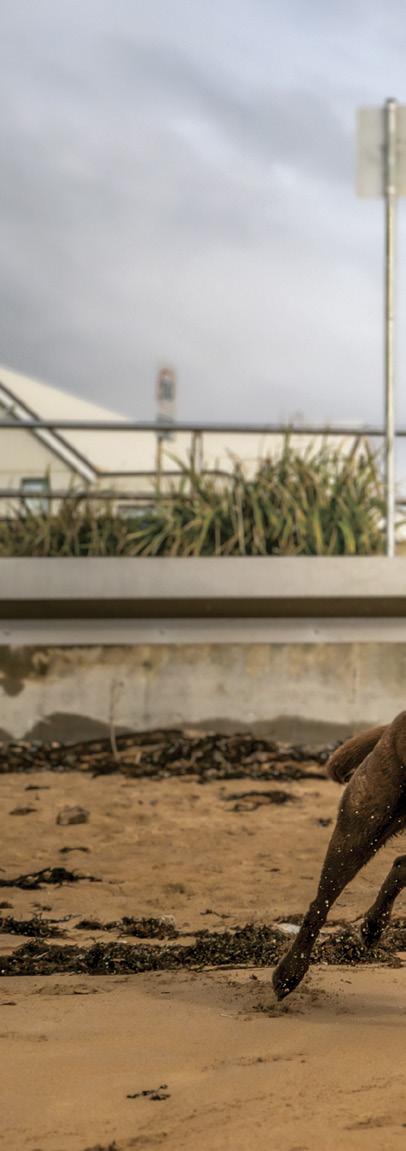
meetings is to knit, nothing complicated, just basic knitting, but it always helps me to stay foccused.
Drive home and listen to a podcast on the readings for next Sunday. We are using the Narrative lectionary in three of our four congregations and, at the moment, we are in three weeks of exploring 2 Peter. Not a part of the Bible we look at often, so a challenge and exploration of new area for leading worship. I will be leading worship at Stowport this coming Sunday, part of the Burnie congregation. It’s a small farming community out of Burnie and a small congregation, so the needs and people are different in each worshipping group.
Arrive home before dark. It’s really nice and gives me an opportunity to take Milly for a walk down along the beach, a time of unwinding, relaxing, stretching out the body and being reminded with the waves continually coming in that God’s love and presence is always constant and how we respond to that is always changing, like the sand along the beach.
Wednesday
A day of no scheduled things, so time to sit with the readings for Sunday, allow them to percolate within my brain, then go and have a walk along the beach with Milly and a coffee and doggychino at our favoutie café in Penguin.
Then home to cook some meals to be given to a person who is struggling financially, and really only has the facilities to heat meals up, not to cook. This allows space for my brain to float ideas around about the readings, what I can use in the service, etc.
In the afternoon, I sit down at the computer and allow space for the worship service to be created in. Remembering that at Stowport they are a worshipping community of six people, who punch above their weight in living out the good news of God.
Each week, they offer hospitality for all the locals in their community, to gather for a cuppa and in the second hour each person — usually around 20 or so — share how they are going. It can be
Yes launch.
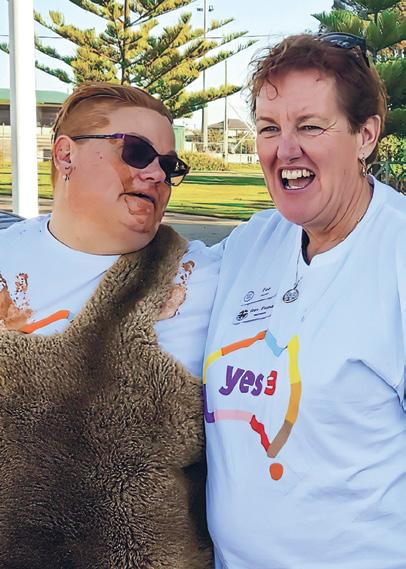
6
From P5
things like the sale of a good bull, writing a book about your life and sharing why you felt called to do so, it can be the struggle of dealing with cancer or family illness, all these people know they matter and are loved.
Last year, one member, Christine, felt called to resume the Sunday school for the children and grandchildren of the area. This resulted in a baptism for two of the children last year. I wonder to myself, with the start of school holidays will there be children at the service and some of their families? I think yes, prepare for that, so I decide on what story book I will use, about knowing that we are loved and affirming each other. I think that what will resonate from 2
Peter 1 is that we are called to put our faith into action and that we are led by the Spirit of God and then we will see the fruit. Remembering and recalling the stories we are called to share, not just the ones from scriptures, but also our local stories, and invite them to share these stories.
Thursday
A drive off to Devonport for our monthly Pride coffee catch up. We gather at a café in Devonport, Laneway, place the rainbow flag on the table and everyone is welcome. This month, there are about 13 of us, from gay, to non-binary, trans people, allies, First Nation, non-binary as
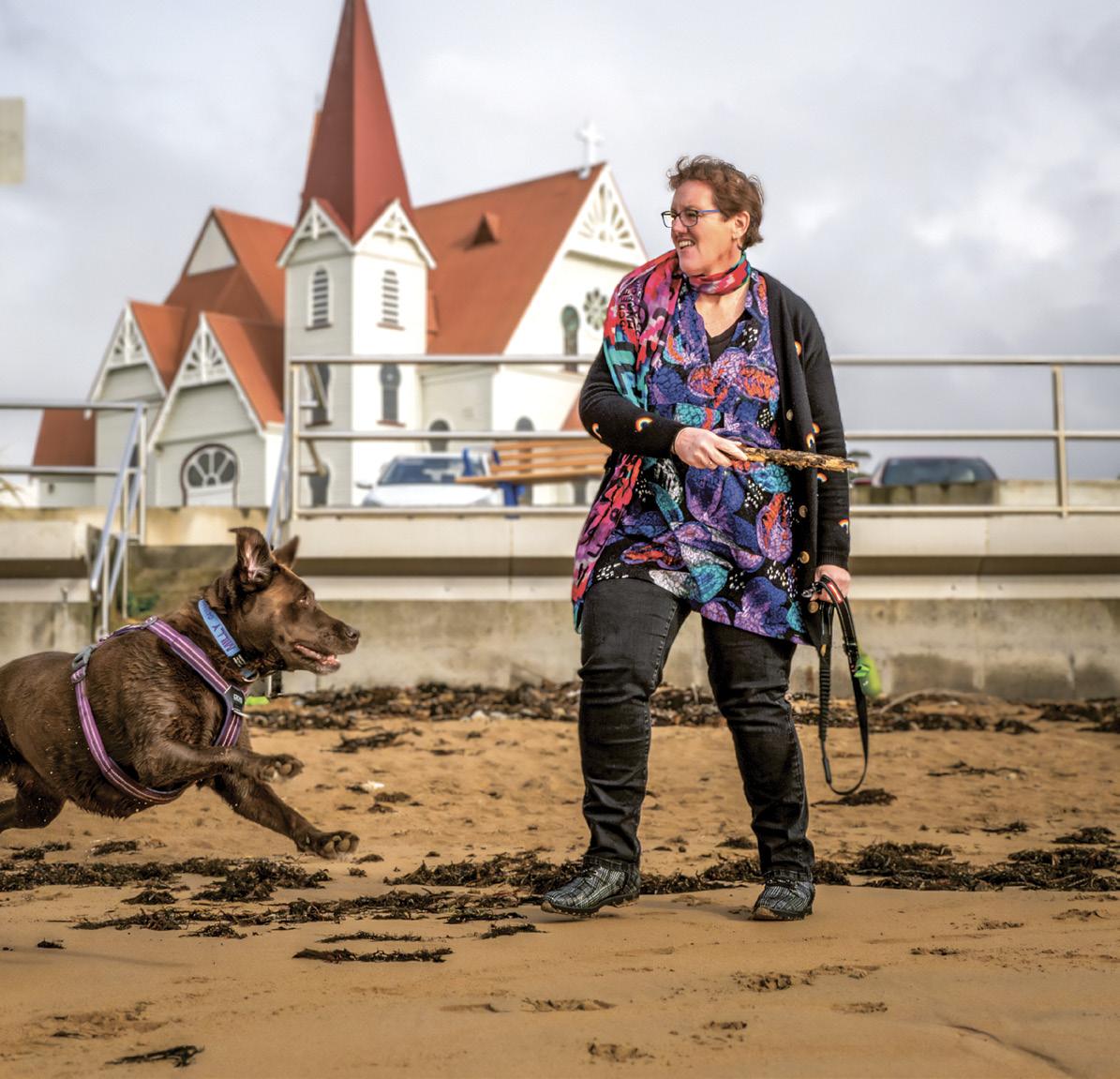
well which is another struggle in itself. In the conversation, I listen to the story of the trans-woman who transitioned late in life, and is struggling with feeling worthwhile and appreciated, who are they now. Their determination to help others go through what they have in a more healthy way, so studying community work at TAFE, and realising how far they have come in three years, from self-harm and being suicidal to now sharing their story with others to assist others.
I listen to the autistic person share their fear about coming out fully to everyone they know. We cry and laugh together, share hugs oh so freely and I am reminded of what it means to be fully
7
Continued P8
welcomed into a community and God’s loving embrace.
I am always in awe of this group of people, their openness and authenticity with each other, of how we as church communities could learn from them.
The afternoon is spent collating and preparing worship resources for our worship leaders, both on the RCL and the Narrative lectionary. I am trying to prepare resources for our four weeks on Wisdom and poetry readings, these are not usually found elsewhere in the RCL, except on the odd occasion. So it is a challenge, to think of music options, giving people my notes on my first thoughts on the readings and some more collated thoughts. Sharing prayers, calls to worship and blessings, trying to write some and source some from trusted websites and writers. Including Sally Douglas’s new book Jesus Sophia,
woman wisdom, this will help worship leaders get a bigger picture of wisdom throughout the scriptures and an idea of a female divine image, which many people struggle with.
In the evening, it is our Burnie gathering at a restaurant, where members of the congregation and wider community gather to have dinner together. Someone shares about their navy cadet days as a female, when there was an oil strike in Victoria and the females had to have cold showers as their showers were still on oil, while the men had hot showers. As we drink and eat together, we accept each other and all the differences we bring to the table are accepted in our love for humanity. I hear about the end of the mutton bird season for our First Peoples, and how many people use the oil for health reasons.
Friday
My scheduled day off, but still so much to finish off for the week before I can take some space. Prepare the powerpoint for Sunday’s worship, then finish the resources for the Wisdom and poetry time and send them to our worship leaders.
It is now 2pm and pouring with rain. What better way than to spend the afternoon off than to watch last night’s Tour de France, and knit away. Time and space for me to recharge.
It has been interesting doing this writing up of the week, and reflecting on how different resource ministry compared with congregational-based ministry. Sometimes we are so busy doing that we don’t take to to reflect and notice the differences in where God is is calling us.
Care and support tailored just for you with Uniting AgeWell
Help at home
Get assistance with personal and clinical care, household chores, assistive technology and transport
Community support and wellbeing
Remain connected with social groups, outings, health and therapy services, seniors gym and carer services
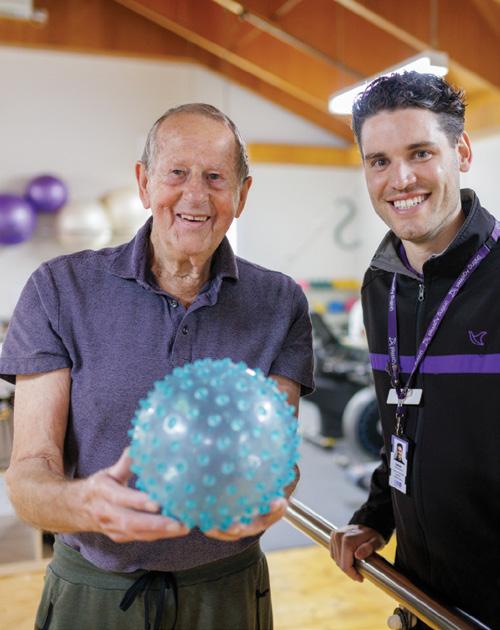
Independent living
Maintain an independent lifestyle in one of our vibrant retirement living communities
Residential care
Specialist 24/7 care and support, including dementia and palliative care and respite stays, within safe and caring communities
8
From P7
Living well with choice and peace of mind
unitingagewell.org With services across Victoria and Tasmania, Uniting AgeWell's expert team can help you find the right services to meet your needs. Call us today! 1300 783 435
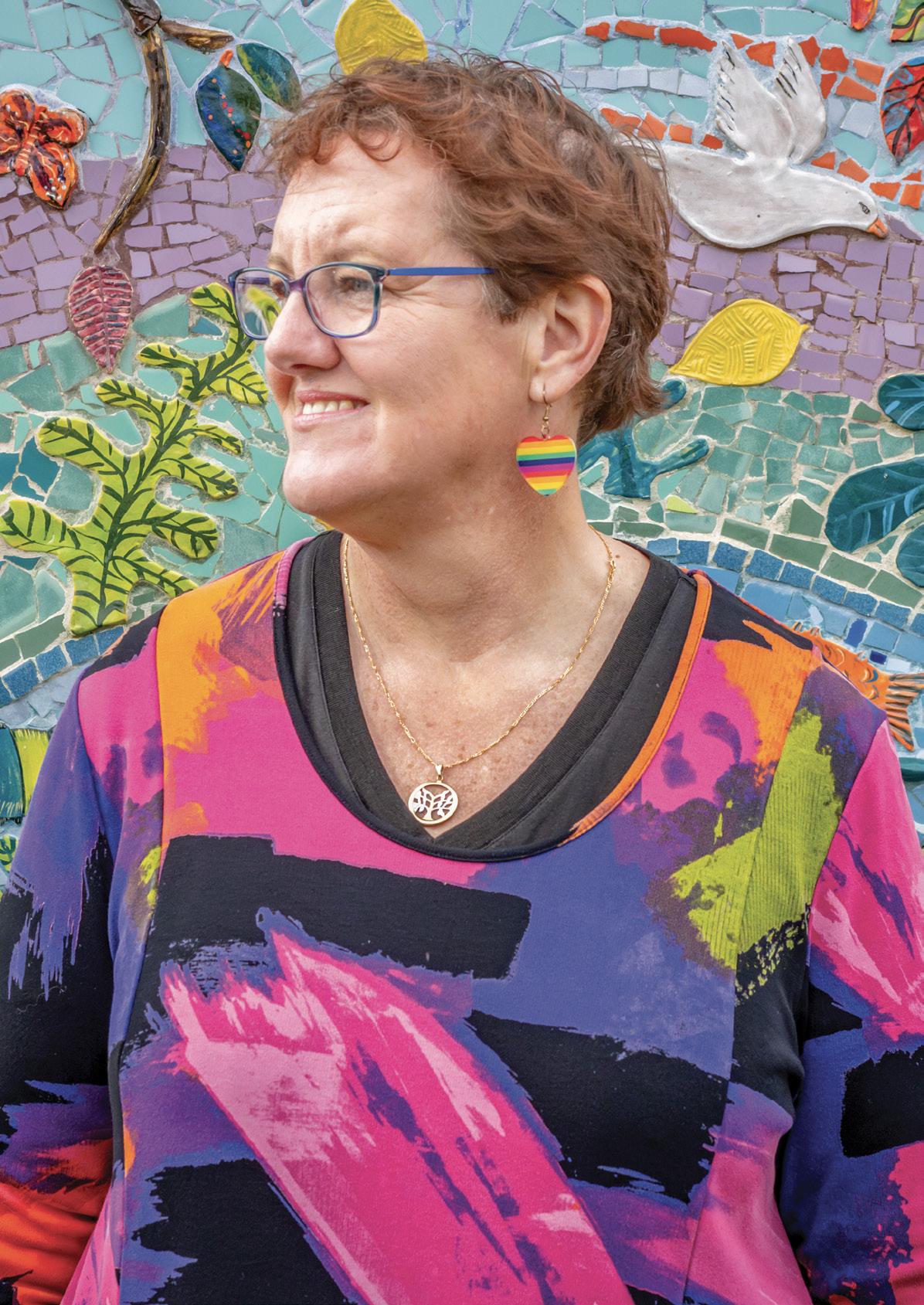
Strength from
adversity
By Andrew Humphries
If Hollywood is looking for its next big blockbuster, it need look no further than the remarkable life of Dr Jacob Atem.
Jacob’s story contains all the ingredients needed for a hit movie.
How about this for a plot.
At the age of six in 1991, Jacob and his cousin are forced to flee from their village in Sudan as it is attacked and burnt to the ground by northern Sudanese soldiers, with his parents and a number of siblings killed.
Jacob and his cousin, along with
many other displaced children, become the famous Lost Boys of Sudan as they undertake a perilous journey by foot across parts of Africa, facing malnutrition, dehydration, and exhaustion along the way. Their journey puts them in constant danger of attack by lions and involves crossing the crocodile-infested Nile River, with Jacob almost drowning at one point.
Jacob arrives at the Kakuma refugee camp in Kenya, where he learns to read, and remains there until, at the age of 15,
he is sponsored to settle in the United States as part of a foster family run by a remarkable woman named Jane White.
He settles in this strange new country, graduates from high school and college and eventually attains a PhD from the University of Florida after earning Bachelor’s and Masters’ degrees in Michigan.
In 2008, Jacob and his friend Lual Awan form the Southern Sudan Healthcare Organisation to help improve healthcare services in South Sudan,
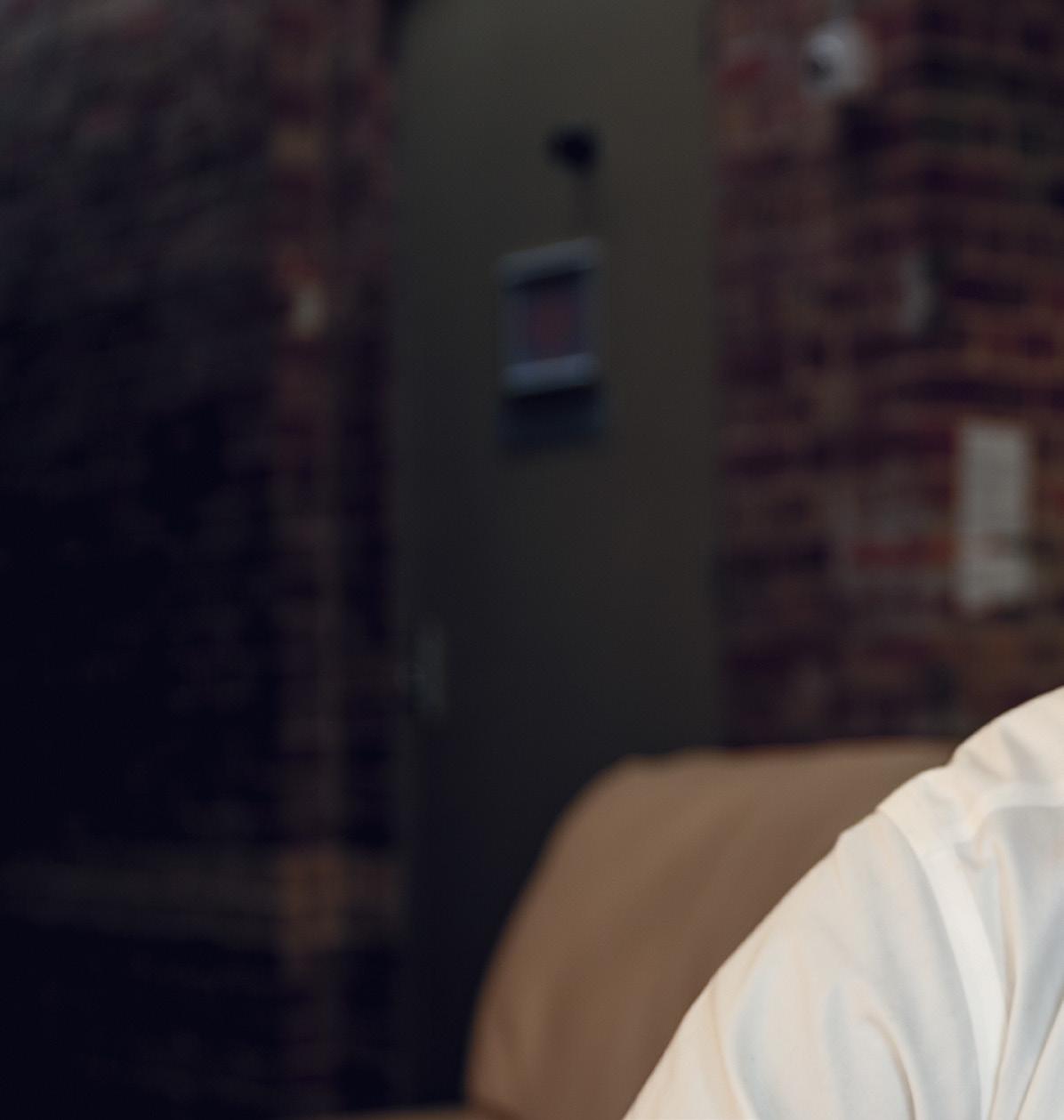
10
From a childhood spent in a Kenyan refugee camp to being honoured for outstanding humanitarian work as an adult, faith has been a constant companion on Dr Jacob Atem’s remarkable journey.
Dr Jacob Atem.
Image: Carl Rainer
building the headquarters in the village of Maar, which Jacob had seen burnt to the ground as a child.
He addresses the United Nations about literacy and the many benefits it has brought to South Sudan, and is recognised as a Modern Day Hero by the Aurora Humanitarian Initiative.
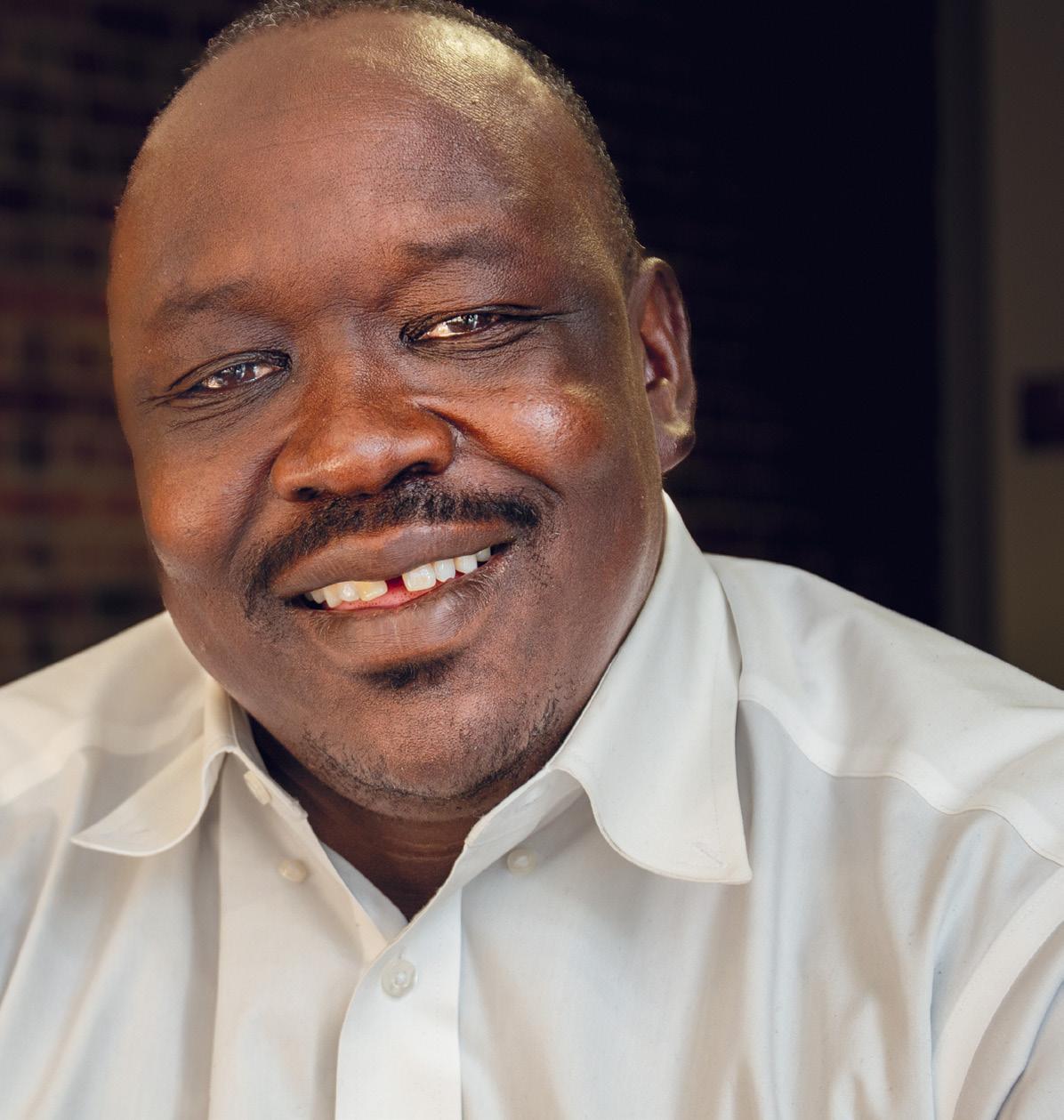
In 2022, after 31 years, Jacob is reunited with his sister Ayen, who like him had been displaced during the 1991 attack on their village.
It’s a most remarkable story, yet the
man at the centre of it appears to be one of the most down-to-earth people you will ever meet.
At the heart of Jacob’s story is a deep faith, one that he shares with his Melbourne-based older brother Gabriel, a member of the Footscray Community Uniting Church.
In June, Jacob spent three weeks in Melbourne visiting friends and relatives, including Gabriel, and spreading the word about the Southern Sudan Healthcare Organisation and the
wonderful work it does in his country of birth.
It was also an opportunity to thank Gabriel, and the Footscray congregation, for its ongoing support of SSHCO.
SSHCO opened its Maar clinic in 2012 and a mobile clinic in the Mongalla displacement camp in 2020, with the “goal of bringing health and hope to where it is lost”.
In 2022 it built an education centre for primary-school children, and its agricultural expert helps families in
11
Continued P12
South Sudan learn best practices in farming so they have food security during dry seasons.
It also provides saving loans which help provide livelihoods for families and allow the community to become selfsufficient.
Listening to Jacob’s story, and his strong bond with Gabriel, is a timely reminder that the power of faith is a mighty tool on the journey of life.
That strong faith, despite being tested at times, has been Jacob’s constant companion in life, including during a childhood that would have tested the resolve of anyone.
His story really begins as a six-yearold on a day over 30 years ago, in a country wracked by civil war.
“In my village of Maar, my job was to wake up at dawn and take my family’s goats and cows to find grass and water,” Jacob recalls.
“I was caring for the animals with my cousin one morning in 1991 when I heard gunfire and screaming and, when I ran to see what happened, I saw my village on fire.
“The rebel forces from northern Sudan had invaded, and I knew that my family members had either been killed or taken into slavery.

“I was six years old and, along with other young boys whose villages were destroyed, I started walking.
“As we trekked through the wilderness, we endured malnutrition, dehydration, exhaustion and worse.
“One night when I was hiding in the bush, one of the boys yelled ‘lion’, and I fled and ran into a sharp branch that cut my leg so deeply I could see bone.
“There was no way to get medical
treatment but, miraculously, it didn’t get infected.”
Jacob estimates that about 10,000 of the children who made the same trek as him died along the way.
“Walking nearly 2000 miles I saw many boys die from communicable diseases such as hepatitis B, measles, pertussis and tuberculosis,” he says.
“Like them, I’d had no vaccinations, and the refugee camps where we ended up were overcrowded and prone to outbreaks of cholera, shigellosis and other diarrheal diseases, affecting younger children the most.”
As he reflects on life in the Kakuma refugee camp, Jacob says it was older brother Gabriel who showed him the true meaning of faith, when they were reunited at the camp.

“I've been through great struggles and, yes, I suffered a lot as a young child, and what got me through it all was my faith,” Jacob says.
“But one thing that I truly enjoyed was learning from Gabriel about what going to church really meant.
“Church was what continued to give us hope at times likes Christmas, which was my favourite time in the camp.
“And I remember looking at Gabriel and thinking that he had a greater faith than me, because he never missed going to church, unless he was very sick.”
Jacob’s traumatic childhood meant that his belief in a higher power was tested on numerous occasions.
“Oh yes, it was tested many times when I witnessed many tragic events, but I would always ask myself, ‘why should I leave you now Lord?’,” he says.
“He has delivered for me on so many
12
Continued P15 From P11
I knew that my family had either been killed or taken into slavery.
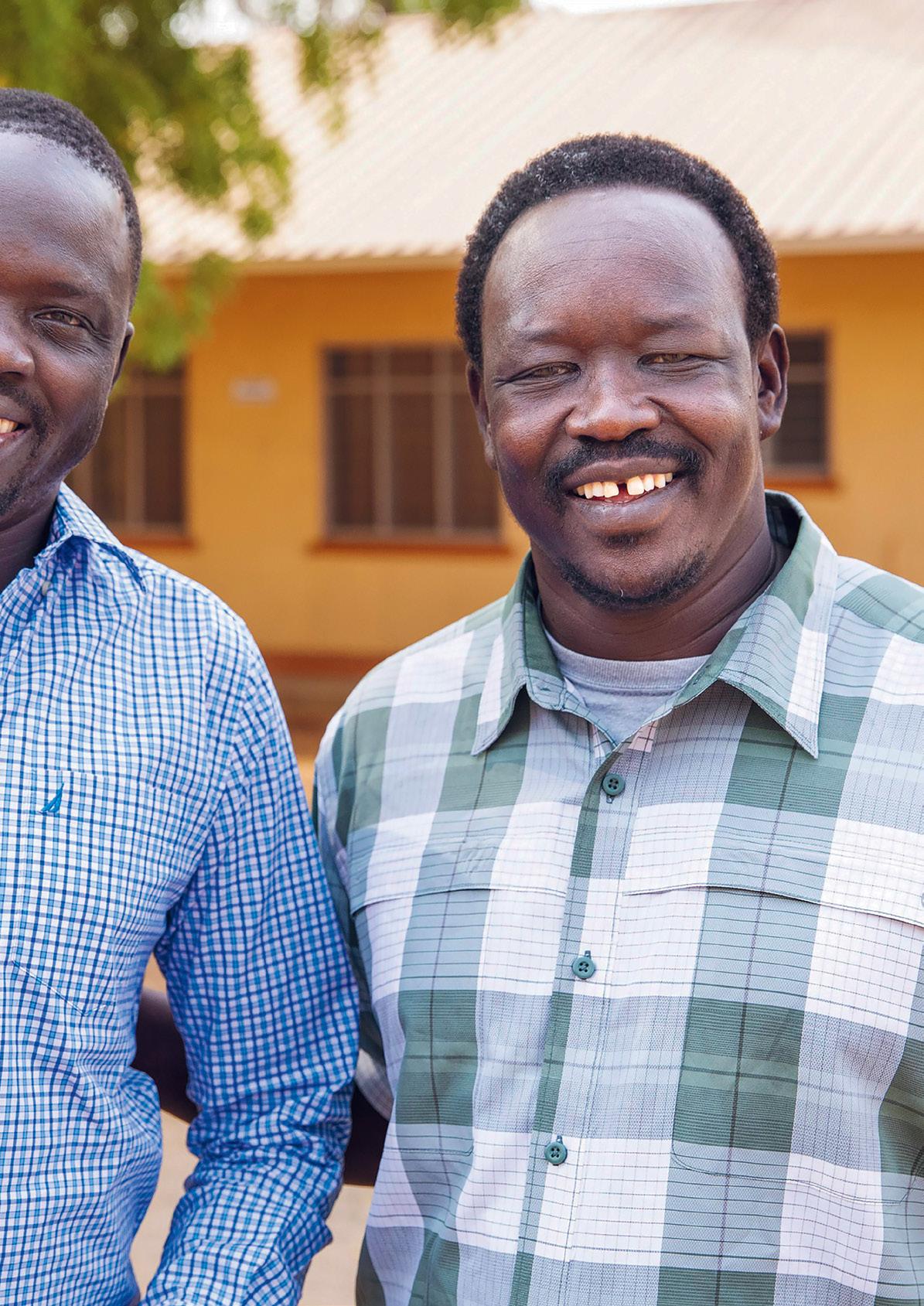 Dr Jacob Atem and Southern Sudan Healthcare Organisation co-founder Lual Deng Awan in South Sudan last year.
Dr Jacob Atem and Southern Sudan Healthcare Organisation co-founder Lual Deng Awan in South Sudan last year.
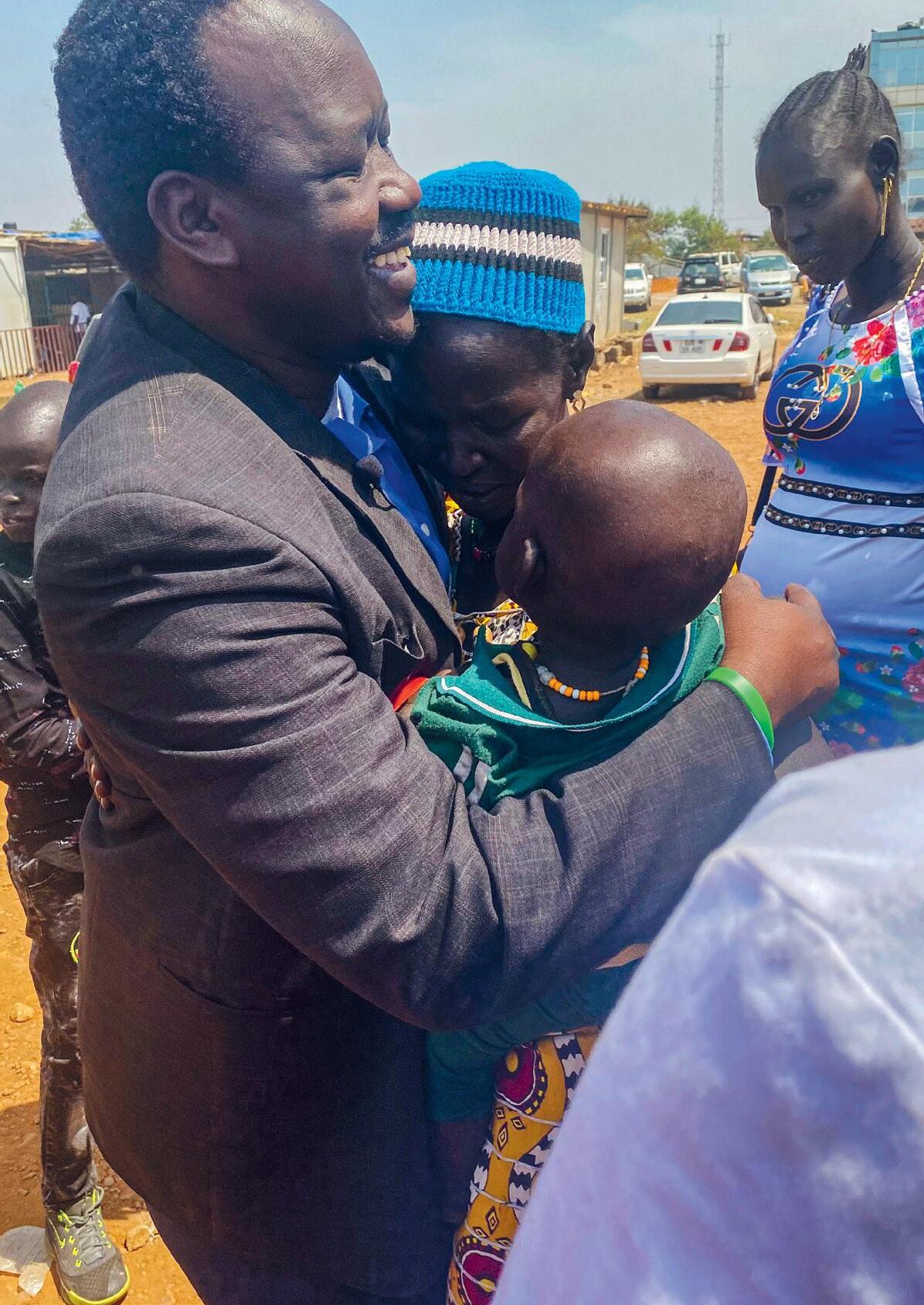
levels that I was saying to him, ‘Lord, I'm all yours and I have your weight behind me’.
“I have been in terrible situations I didn’t think I would be able to get out of and during those times, yes, I had that question of ‘Lord, are you there?’
“But in those times he said to me, ‘do you remember who brought you out of Egypt’.
“So when I'm now sitting in America and I have a home and I have really beautiful children, I just remember what he has provided me with.
“It was tempting, at times, to forget about the Lord, but he always delivered for me.”
Jane White, the loving foster mother who took in Jacob when he arrived in the United States as a 15-year-old, also taught him that there is much to be grateful for in life.
“The Lord changed me when I went to America all those years ago,” Jacob says.
“But he had to work hard on me because when you are by yourself, like I had been, you have to fight to survive.
“You don't have mum and dad to protect you, so all the time you are in a violent survival mode.
“But that wasn’t the case in America because of what Jane was able to provide for me.
“She filled a gap that I had never had.”
Jacob recalls a life lesson from Jane that has continued to resonate with him many years later.
“I remember one day a kid called me a monkey and I wanted to punch him,” he says.
“I remember I went back home and I was so upset and I said to Jane, ‘just take me back to the refugee camp, I don't have time for this’.
“And I was grounded by Jane and that made me more furious and I said to her, ‘why am I grounded?’
“She said to me, ‘listen, I know what you were about to do to that kid and I want to teach you one lesson, and that is do not ever touch someone in that physical way again’.
“I was so angry that I wanted to return to that refugee camp and then I prayed that night and I said, ‘Lord, if I go back there, have I solved the issue?’
“The truth is that wherever you go there are good people and bad people.
“Jane saved me because I don't know if I would have been able to do what I have done without her, because without her guidance I would probably be in jail or something like that.”
While he no longer lives in what is now South Sudan, Jacob continues to give back to his country of birth and is most proud of what he has been able to achieve there in the field of health care.
a health clinic in Maar, which opened in 2012.
“Since then, the clinic has provided new levels of health care to the people of Maar and the surrounding area for the first time,” Jacob says.
“It has provided hundreds of people with a better life, with a focus on maternal and child healthcare in a facility where mothers deliver their babies safely with proper medicines and equipment on hand.
“SSHCO has extended its work to the state of Central Equatoria where, in 2020, it began to provide health services to the Mongalla displacement camp, home to 120,000 people.” Some sobering statistics, though, give a glimpse of the challenges facing SSHCO in combating some of the worst child mortality rates in the world.
“When the Lord brought me to the United States from the Kakuma refugee camp, I asked him, ‘what will my purpose be?’,” Jacob says.
“My faith had been renewed and when I arrived in Michigan I said I wanted to do three things for my village in South Sudan.
“I wanted to build a church, a school and a health clinic, because you can’t have a school and health clinic without a church.”
It may have seemed an impossible goal at first, but Jacob was determined to give something back to his birthplace.
‘Well, I had no idea how to create a non-profit organisation, but in March 2008 we formed the Southern Sudan Healthcare Organisation to bring help and hope to the people there,” Jacob says.
“I remember we opened an account for it with just $5 and I was so excited about it.”
That symbolic $5 was enough to get the ball rolling as support then flooded in for Jacob’s dream.
Generous donors from Jacob’s country of birth, plus Egypt and Kuwait, came on board and $800,000 was raised to build
According to The Borgen Project, which fights global poverty, nearly 75 per cent of all child deaths in South Sudan are due to preventable conditions such as diarrhea, malaria and pneumonia.
The prevalence of these and other deadly conditions are major factors in South Sudan’s high infant mortality rate, with 96 infant deaths per 1000 births.
During his visit to Melbourne, Jacob took the opportunity to thank the Uniting Church for its ongoing support of SSHCO.
As part of the Footscray Community Uniting Church, Gabriel has been able to harness that support for something that, like his brother, is very much close to his heart.
That support from the Footscray congregation proved vitally important in 2020 when severe flooding impacted heavily on more than 600,000 people in South Sudan.
“Because of our strong connection with South Sudan it was important that we were able to support SSHCO with financial assistance,” Gabriel says.
“That strong connection opened up a wonderful opportunity to help my brother and his work with SSHCO,
15
"I've been through great struggles and, yes, I suffered a lot as a young child, and what got me through it all was my faith."
Continued P16 From P12
Dr Jacob Atem
and it’s a way of saying how much we appreciate what is being done in South Sudan.
“It’s nice to be a support base in Australia for the work that is being done in our country of birth.”
As Jacob and Gabriel continued to rebuild their lives in the United States and Australia, there was still something missing, a deep yearning to reconnect with someone they had lost on the day their village was attacked in 1991.
The last time Jacob saw his sister Ayen was when enemy soldiers captured her and his nieces and took them away that day.
In the years that followed, Jacob never forgot Ayen and continued to search for her.
about this, until we decided as brothers we must forgive them.”
As he reflects on a life story involving hardship that none of us could properly imagine, Jacob says he has been blessed with all that any man could want.
“I’m not rich in terms of having millions of dollars, but I'm rich in that I'm breathing,” he says.
“I'm rich in that I’m still alive and I have three beautiful boys who were born in a modern hospital.
“Matthew 6: 33 tells us to ‘seek first the kingdom of God and his righteousness, and all these things will be added to you’, and that is something that resonates deeply with me.
“So all of this righteousness will be added onto and that’s why I’m so
“For 31 years, I have been searching for my sister and nieces,” Jacob says.
“Finally, on January 30, 2022, I was able to find Ayen and my nieces and fly them to Juba, the capital of South Sudan.”
But even in finding his sister, Jacob’s faith was tested
“What is unique about my sister and nieces’ reunion is the fact that they brought with them those who had abducted them and their family members, and who they have then lived with for the last 31 years,” he says.

“So my sister, nieces, and their children now identify with other families from another tribe that has been taking care of them for those 31 years.”
It meant that Jacob and Gabriel had much soul searching to undertake before they could forgive those who had abducted their sister and nieces in 1991.
“When we talk about forgive your enemy yourself, it's one thing to say that but another thing to do,” Jacob says.
“So last year Gabriel and I prayed as we asked ourselves what should we do
excited about what we are doing with the Uniting Church, because it’s showing that what unites us isn’t the colour of our skin or anything like that, the anchor here is Jesus Christ.
“This is where the joy comes in because when you look at the teachings of Jesus it’s about asking how you can help the most vulnerable people.
“And this incredible book of Jesus is telling us to love your enemy as yourself, and to love your neighbour, and the Lord is talking to me and saying, ‘what can you give back to people’?
“He is saying to me, ‘take care of those people in need’.”
16
"Because of our strong connection with South Sudan it was important that we were able to support SSHCO with financial assistance."
SOUTHERN
From P15
Gabriel Atem
SUDAN HEALTHCARE ORGANIZATION
Crosslight is a bi-monthly magazine produced by the Communications and Media Services unit of the Uniting Church in Australia Synod of Victoria and Tasmania.
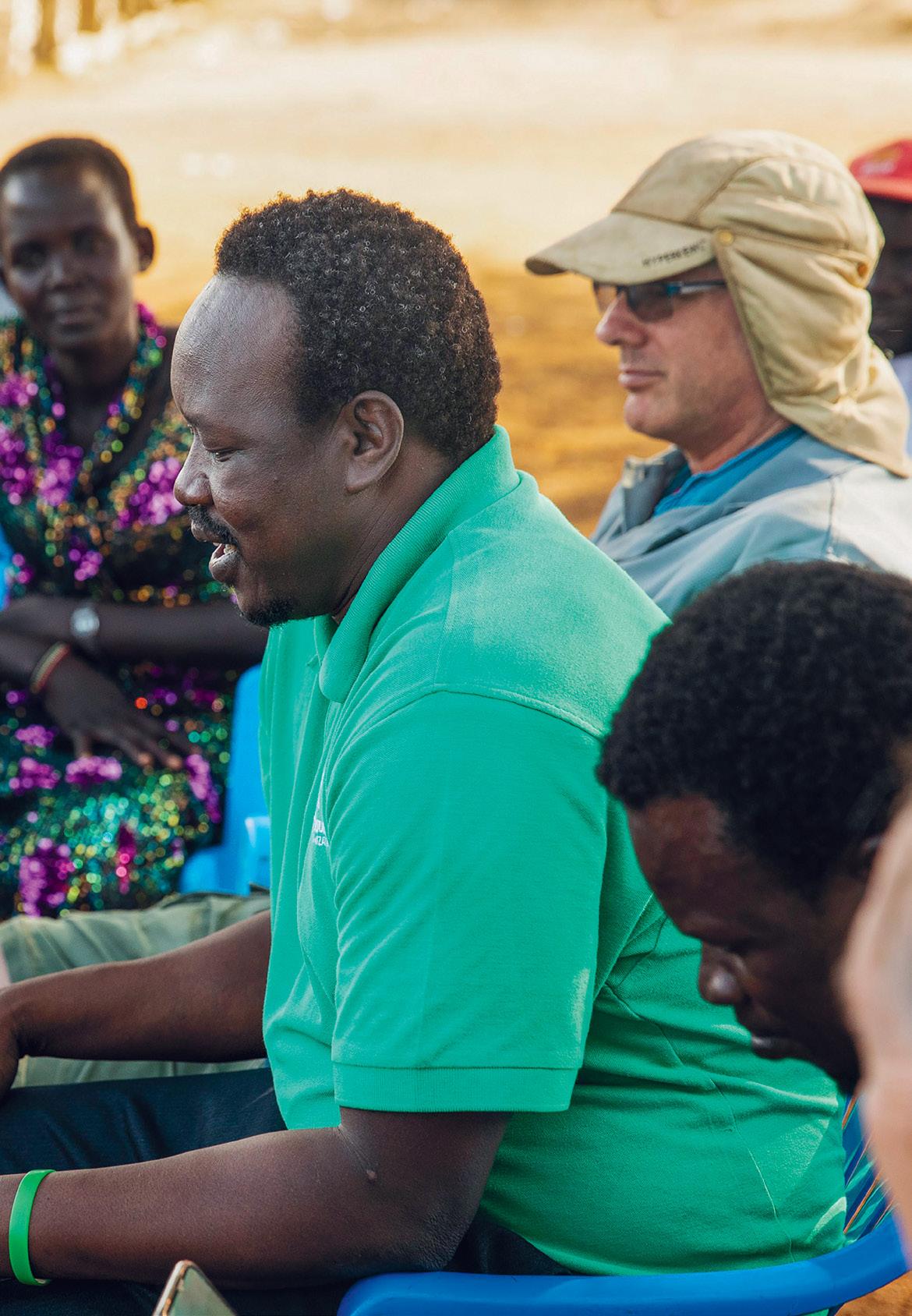
Opinions expressed in Crosslight do not necessarily reflect those of the editor or the policies of the Uniting Church.
Advertising
Crosslight accepts advertising in good faith. Acceptance of advertising does not imply endorsement. Advertising material is at the discretion of the publisher.
Advertising deadlines
Bookings (October, 2023)
August 24, 2023
Copy & images for production
August 30, 2023
Print ready supplied PDF
September 13, 2023
See crosslight.org.au for full details.
Distribution
Crosslight is usually distributed the first Sunday of the month.
Circulation: 16,000
Editor Stephen Acott (03) 9340 8819 stephen.acott@victas.uca.org.au
Communications Officer
Andrew Humphries Ph: (03) 9116 1400 andrew.humphries@victas.uca.org.au
Graphic design, Photography and print services
Carl Rainer (03) 9340 8826 carl.rainer@victas.uca.org.au
Advertising and Distribution
Stephen Acott 0433 929 732 stephen.acott@victas.uca.org.au
UCA Synod office
130 Lonsdale St Melbourne Victoria 3000
Feedback & correspondence crosslight@victas.uca.org.au
ISSN 1037 826X
Next issue: August, 2023
ucavictas ucavictas
tothe future
kcab
In July next year, Uniting Church members from around Australia will gather at the 17th Assembly with one hugely important item on the agenda.
In fact, in terms of the Church’s sustainability, the item up for discussion couldn’t be more important, with the decisions that arise from it set to chart our future course for many years to come.
This groundbreaking discussion, and the decisions that follow, will bring to a close the process known as the Act2 Project, an exhaustive period of engagement, consultation, discernment and decisions intended to map the future direction of the Church and its members.
By Andrew Humphries
It’s quite likely that Uniting Church members will never again be asked to consider such an important document than the one which will emerge from the Act2 Project.
Former Assembly Standing Committee member and current Act2 Project communications officer Bethany Broadstock says the platform for a deep conversation around the Church’s future was laid three years ago at a national level.
“It began in March 2020 at the prompting of Assembly Standing Committee members, who recognised the numerous and sometimes overlapping challenges we are facing as a Church, and that some kind of
intentional conversation about this needed to start from somewhere,” she says.
“They recognised this was faithful to the Basis of Union vision that we will keep our life ‘under constant review’.
“Our current governance structures were made for the church we were four decades ago and no longer make sense, and they are too unwieldy, too inflexible, have too much overlap and are simply too big.
“We are now a much smaller and older church with less people and less capacity than we have had in the past. This is not a judgement or criticism, just an observation.
“Whether we are ready to accept it or
18
In less than 12 months, the Uniting Church Assembly will meet to make a number of vitally important decisions, arising from the Act2 Project, aimed at ensuring the Church’s sustainability for many years to come.
Continued P20
19
not, the Uniting Church is in a season of change and renewal.
“Addressing our challenges will take courage and honesty about the past, present and future, and Act2 is an opportunity to face our challenges head on as a whole Church and discern together a system of life and governance
that will be life giving, instead of just patching holes in our context or simply dying apart in the next 10 years.”
The work of members of the Act2 Project Unit and Act2 Steering Committee, which was established last year and includes Melbourne’s Jessica Hateley-Browne, will culminate in a
series of recommendations to be put before next year’s 17th Assembly.
It’s been an exhaustive process to date involving intense and important work, a fact not lost on Jessica, but one she has approached with great excitement, rather than any sense of trepidation.
“I have been describing it to people as the possible precipitator of the greatest period of change for us since union in 1977,” she says.
“More than anything, though, it excites me, as there is a responsibility collectively on all of us to discern what's right for the Uniting Church and to discern what God is calling us into.
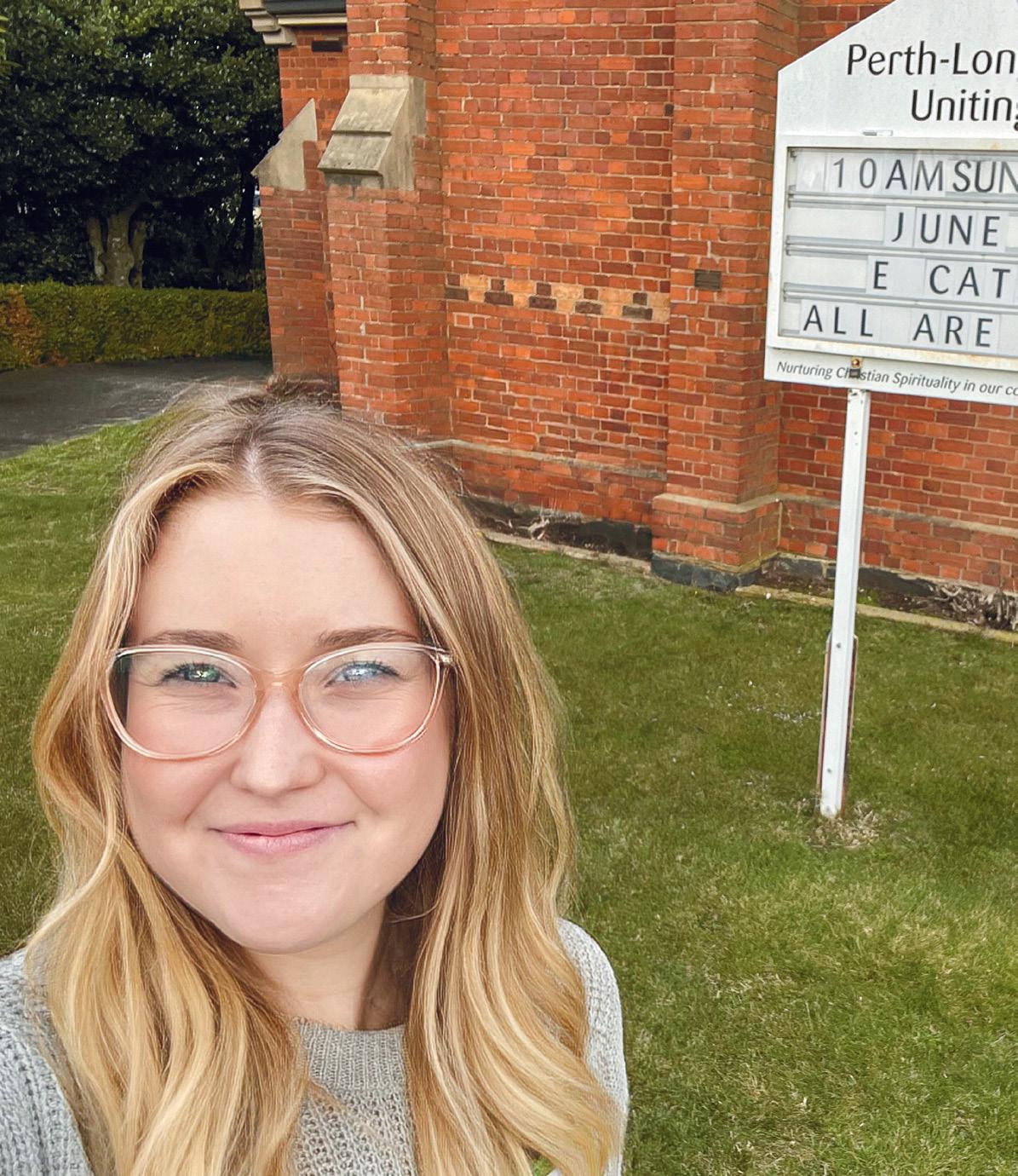
“The possibility of what all of this could bring, though, is really energising.”
Overseeing the Act2 Project is Canberra-based Uniting Church member Andrew Johnson, who brings a wealth of experience to the role, including positions with Uniting Care, Uniting World, and World Vision Australia, as well as 12 years as part of the Assembly Standing Committee.
As conversations within the Church go, they don’t come bigger than this one, he says.
“We certainly see it as the biggest conversation we’ve had in the Church in its 46-year history,” Andrew says.
“We've had big conversations down through our history around baptism, and ministry, and the long shadow of the debate on human sexuality, but this is a really significant conversation collectively we're trying to have about the shape and the order of our Church, given the very, very different Church we have become since 1977.
“It’s only a couple of years ago that we celebrated the 50th anniversary of the Basis of Union, and what we are asking now is how do we keep reimagining how we can live out the vision contained in that?
20
Bethany Broadstock: “Our
current governance structures were made for the church we were four decades ago and no longer make sense.”
From P18
“So for me, the most important thing is us doing our best work in this Act2 Project to help the Church have the conversation needed about its life and its future.
“I have a great passion for the church and I have a lot of ideas, but I also know that the church isn't going to change just because I write a report or bring a proposal forward, it will only change to reshape its life to be healthier and more life-giving if it chooses to.
“The weight of responsibility I feel is around how we do our best work to enable the Church to have that conversation and to then take action on what emerges from it.”
As a member of the Northcote Uniting Church, Chair of its Church Council, and a Synod Standing Committee member from 2017-22, Jessica is also perfectly placed to bring her skills and experience to the table for a deep dive into the Church’s future direction.
“I bring a sense of enthusiasm for the Church, and a commitment to its future, to my role on the steering committee,” she says.
“I want the Church to continue to exist, and I would love to have another 40 years of worshipping as part of it.
“I bring to my role a real hope for the Church’s future, and I wanted to be able to be a part of helping to ensure that that future exists.
“I have been involved in other councils and communities of the Church, a former member of the Synod Standing Committee and have led a number of projects as part of that, so I think I have a bit of a sense of the strategic challenges that the Church is facing.

“There's also a set of professional skills that I can bring to the process in terms of strategic thinking and project planning, and also around stakeholder consultation.”
In my message this year for the 46th anniversary of the Uniting Church, I posted this central question: “Are you and I prepared to answer courageously Christ’s call for our time and place?”
It was an echo of the question posed by our inaugural President Rev Dr Davis McCaughey in 1977, and resonates with the vision of Act2.
Giving thanks for our past, we ask: where is God now leading us, and how might we rise to the challenge of the Basis of Union to order our life “in response to God’s call to enter more fully into mission?”
Act2 is an historic project, both in breadth and depth. It is the most holistic exploration of the life of the Uniting Church we have ever undertaken, and is committed to engaging personally with people in every part of the Uniting Church.
As a Church, we are in a new context. Much has changed since the time of our formation, both in our Church and in the world we inhabit. Act2 is engaging the whole Church in discerning what might be the most appropriate and life-giving form of governance for the Uniting Church of 2023 and the decades to come. At the heart of this work is local Uniting Church communities, whose worship, witness, service and discipleship we seek to better enable and to see flourish.
For some it may seem that the governance of the Church is far removed from the realities of life in local communities. However, we have heard clearly through our engagement that the way the wider Church orders and runs itself does have a significant impact on the ability and freedom of our communities to live out their mission and ministry.
By ensuring our governance is as
effective and flexible as possible, we pray that members of the Uniting Church will be freer to engage in ministry and mission, witness to the good news of Jesus Christ, invite people to faith, engage in faith formation and work to build communities of justice and inclusion.
We continue to affirm the importance of the legal, ethical and social obligations we have as a Church, reflecting our desire to be safe and supportive communities, particularly for those who are vulnerable, but we must explore how to best fulfil these so that they don’t become overwhelming for local communities, stifling ministry.
Act2 is a pause at this moment of our life, allowing us a chance to think afresh about how we go about the important work of governing the Uniting Church in ways that support and sustain people in their discipleship, and in ways that honour the vision of the Basis of Union, the Covenant and our desire to be a multicultural Church.
In my anniversary message I asked: “Will we faithfully grapple with the changes in our life over the last four decades, trusting that even smaller and more marginal, we can be a faithful witness in this land? Can we be courageous in the face of our challenges? Might we make peace with the possibility that some things in our life may need to die so that new life can emerge?”
Act2 is one way we are grappling with these questions. Now is the time to pray and participate. As we give thanks for the witness of those before us, we hear the invitation to forge a new future together in hope, a future of faithful innovation, discipleship and community.
Rev Sharon Hollis, Uniting Church in Australia Assembly President
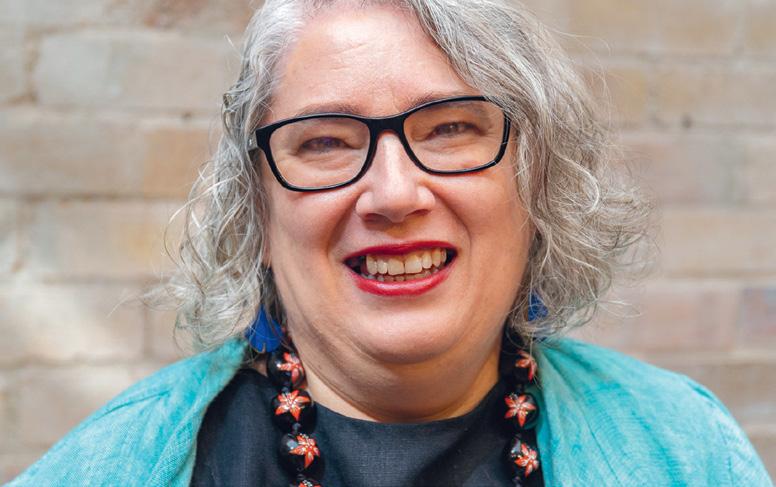
21
We can forge a new future
Continued P22 21
Sharon
Hollis: “We hear the invitation to forge a new future together in hope, a future of faithful innovation, discipleship and community.”
At the heart of any discussion around the Church’s future, says Jessica, must come honesty.
It’s possible to love so much of what the Uniting Church represents, and does, while still asking some tough questions around what it and its members could do better, she says.
“I love the Uniting Church dearly, but I think if we look around and we are honest with ourselves we all notice and have experienced that our life together hasn't always been optimal,” Jessica says.
“Perhaps the way that we are structured, the way that we organise ourselves, and the way that we are governed, isn’t always as life-giving as it could be.
“But I think there is still something inherently beautiful about the fact that the Basis of Union which articulates the platform that the Uniting Church was formed around, continues to be inspiring to people throughout the country.
“We want to be able to keep the essence of what enables the Uniting Church to make such a positive contribution to the religious institutional
landscape in Australia.
“We have to be able to reinvigorate our local communities of faith, and we need to be able to organise and govern ourselves in a way that is life-giving across the different councils of the church while retaining our interconciliar nature.”
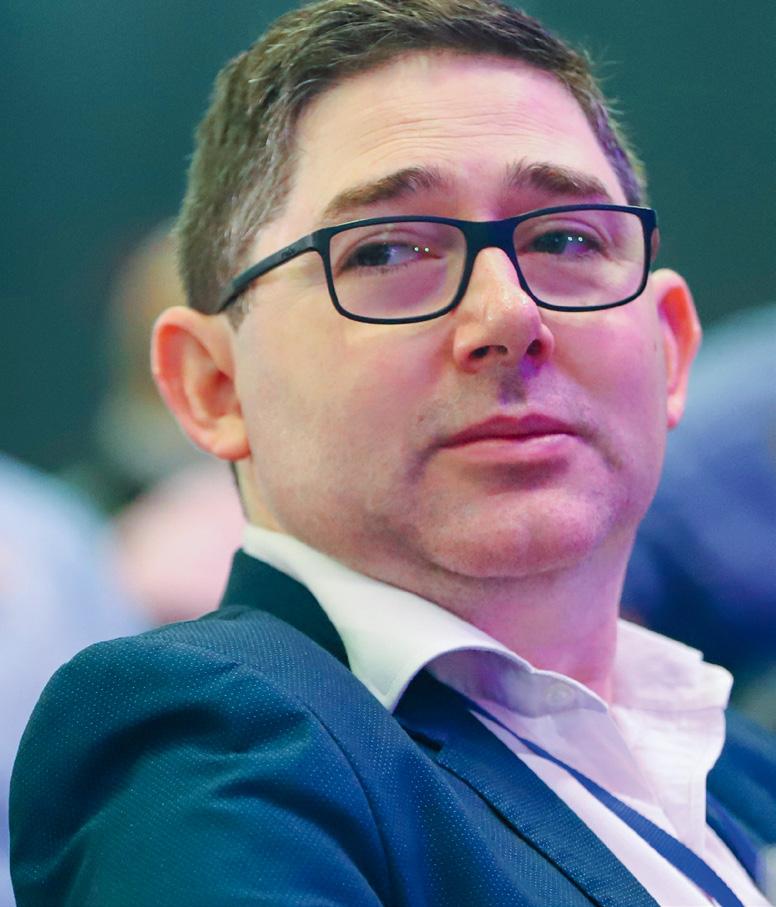
As phase one, or Exploration, of the project has come to a close, Jessica is excited about the insights members have contributed to what has become the ‘Act2: In response to God’s call’ report.
“Phase one was a time to explore possibilities and ideas, and reach out to every congregation and faith community, every Presbytery, every Synod, and all of our agencies to generate and explore ideas,” Jessica says.
“It was an opportunity to think about how life could be shaped differently, focused on what is currently working well and is life-giving, and what people love and appreciate about their worship and life together in the Uniting Church, but also about what isn’t working, what is holding us back, and what are some of the challenges and barriers we’re experiencing in this context.”
Andrew says phase one of the project provided a wealth of material and insights for the steering committee to consider in preparing the ‘Act2: In response to God’s call’ report.
“I think that it has provided us with a thorough look at the reality of the state of our Church,” he says.
“Someone gave me the quote recently that ‘contemplation is a long, loving look at the real’, which comes from a Jesuit priest, and what I found is that I feel like we encountered the reality of the Church during this first phase.
“So we didn’t get everything we might possibly have wanted through the process but we did get a pretty strong sense, feel and understanding of the
The journey begins
The Act2 Project involves three separate phases, culminating in a series of recommendations to be put before the 17th Assembly in July next year.
The Act2 Project is led by the national Act2 Steering Committee and a staffed Project Unit, established following the decision of the 16th Assembly.
The Steering Committee is made up of people from across the Uniting Church.
Act2 has the potential to be the most transformative change project the Uniting Church in Australia has been involved in since the Basis of Union.
It focuses on discerning and deciding on our future together centred around four workstreams across the three phases.
22
From P21
Andrew Johnson: “We certainly see it as the biggest conversation we’ve had in the Church in its 46-year history.”
shape of our Church and where it's at and how it's feeling about that?
“I think we've got enough to help shape and inform what we're doing now.”
What emerged strongly from extensive consultation, Jessica says, was concern around the many governance and compliance tasks that members felt were impacting negatively on their discipleship.
“What really stood out to me and resonated with me from the report, and was listed as a key challenge, was the fact that we have what are described as weary local communities of faith that are often overburdened by complicated tasks,” she says.
Workstreams
1 Structures and practices within the Church that enable life-giving communities of faith and discipleship
2 Clarity on role, value and resourcing of national identity and national work
3 Governance structures which enable ministry and mission, increase capability, unlock resources and meet our obligations
4 Sustainable set of institutions and practices to support our theological culture, diverse ministries and enable discipleship
Phase one (Exploration)
This took place between November 2022 and May this year, and culminated in the third Act2 report, ‘Act2: In response to God’s call’.
Every congregation and faith community across the country had an opportunity to engage with the process
“They face so many issues around governance and compliance that they're no longer able to put their best energy into discipleship because so many other things are taking up that energy.
“Something else that resonated with me in the report was that our greatest asset is also at times our greatest crisis, and that is our people.
“This includes an ageing population in local churches, leadership succession pathways that are not always obvious, and many Presbyteries and Synods finding it increasingly challenging to fill chair of committee roles and so on.”
Like Jessica, Bethany says feedback from phase one of Act2 clearly indicates that too much energy is being spent on
administration and compliance, rather than the more important mission and ministry work.
“Local people especially are telling us that they do not have the energy for what the wider Church is asking of them anymore and what little energy they do have is getting sapped by things like building maintenance, administration and compliance,” she says.
“This leaves little time for their core mission and ministry. So we need a governance system that both helps us meet our legal and ethical obligations while also letting people get on with the business of being Church.
“There are also big inequalities in resourcing in different parts of our Church.
and help to shape the key insights, issues and contexts around the options to be offered to the Church.
The first phase ended with Uniting in Prayer, an intensive period of shared discernment across the Uniting Church, which began with Pentecost on May 28 this year and continued until the 46th anniversary of the Uniting Church on June 22.
Phase two (Collective Discernment)
This began in June and will continue until November this year, with Uniting Church members asked to engage in an intensive period of shared discernment. Presbyteries and Synods, along with other key governing bodies, will take part in meetings, with possible options and directions explored to assist this process.
All parts of the Church, involving congregations, church councils,
agencies, schools, presbyteries, Synods, colleges, conferences, and networks, will be invited to consider specific ideas.
This will be a period of intense prayer and deliberation essential to the success of the project.
Phase three (Recommendations for Action)
This involves making choices about the recommendations that will be put to the 17th Assembly next year.
This will involve consideration of the insight and wisdom drawn from collective discernment.
“It has always been the hope of this project that it would lead towards concrete action and change, inspired and informed by the reflection and discernment of the Church,” the Act2 Project plan states.
“We anticipate that the change arising from this process will begin to take place across the triennium of the 17th Assembly.”
23
Continued P24 23
Members heed the call
The first phase of the Act2 Project, known as Exploration, took place between November 2022 and May this year, culminating in the third Act2 report since the decision of the 16th Assembly last year to create the Act2 Project Unit and Steering Committee.
The report’s title of ‘Act2: In response to God’s call’, is drawn from the final sentence of paragraph 13 of 1977’s Basis of Union.
“The Uniting Church will thereafter provide for the exercise by men and women of the gifts God bestows upon them, and will order its life in response to God’s call to enter more fully into mission,” the report’s opening page says.
“It is a reminder that the ordering of our life is in response to God’s call.
“This report seeks to both reflect and respond to what we have heard as God’s call on our life through our engagement with the Church, our history, our context and the experiences of so many people shared with us across the length and breadth of the country.”
The 58-page report follows an intensive period of engagement with Uniting Church members right around the country.
The exhaustive consultation period involved direct communication with 2113 local contacts across 1672 local communities of faith and involved all 33 Presbyteries.
Every Synod in Australia was visited, as well as Uniting Church agencies and theological leaders, with 45 meetings allowing for a full process of engagement throughout the country.
Following this lengthy period of consultation, written contributions were received from 187 Church Councils representing over 254 communities of faith, as well as 46 written submissions from individuals, councils and agencies.
“Consistent with the findings prior to the 16th Assembly, this exploration phase has deepened our understanding of the shape of our Church, the challenges we are facing, the things that matter to people across the Church and the imperative for change,” the report says.
“For example, some Synods are relatively well resourced and functioning well, while others are in a more precarious situation.
“This is also true of presbyteries, with some having large leadership teams of ministers and some having no paid resourcing at all.
“It is also true of congregations, where people’s ability to fund mission and ministry depends completely on what money they can raise out of the giving of members or the income off property. This may be unjust, for example, in rural areas.
“So we need to explore if there are better, more equitable ways of resourcing the mission and ministry we want to do.”
Andrew says that feedback during the first phase of the process clearly showed that members were grappling with where their Church was placed at this moment in time.
“I think that we have a Church that is facing some really significant challenges, especially in our congregational life,” he says.
“So that sense of the size, the age, and the energy of our local communities not being where they would hope it would be is real.
“These options range from major strategic change, like going from four councils to three, to something resembling our current structure with some added mechanisms,” she says.
“What we end up proposing to the Assembly next year completely depends on the discernment of the Church.
“A preferred option out of the four may emerge, or out of our engagement we may feel there is a fifth option emerging.”
“There is some grief and disappointment that we're not the Church that we hoped we might be when we turned 46, but there's also still an openness to change, to renewal, and to doing things differently.”
Bethany says Uniting Church members now have the opportunity to consider four directions relating to the future of local communities, and four options relating to future governance.
With the Act2 Project now in phase two, or Collective Discernment, Andrew says members can continue to provide vital input into what will go before the 17th Assembly next year.
“The key thing that we are asking people to do now is to answer the question of where do you believe God is calling us to go in the shape and ordering of our life,” he says.
“We're asking, ‘where is God calling us’, and we're inviting people to engage with what we're proposing, to participate in conversations about it, to offer to us
24
"Perhaps the way that we are structured, the way that we organise ourselves, and the way that we are governed, isn’t always as life-giving as it could be."
Jessica Hateley-Browne
P23
From
where they see opportunities and where they see risks, and whether they've got questions or concerns.
“So it’s not a case of ‘well, here are our proposals and what do you think’, it’s ‘where do you think that God's calling us?’
“It’s about asking ‘what do you think the opportunity for us is, what would this mean for you, for your context and for our life, and what do we do about it?’
“So people need to participate, engage, contribute, and provide their insight, not just wait and see what eventuates.”
Ongoing participation continues to be the key to the whole process, says Jessica.
“Participate, participate, participate is my advice to Uniting Church members,” she says.
“Please take part by getting involved in the process, reading the material in the ‘Act2: In response to God’s call’ report, and making submissions around that.
“I really do think that through participating in a collective discernment phase, we can discern what God is calling us to.
“Sometimes change is hard, but I think we are really well resourced to be thinking about how we can move forward and step into something really good.
“We have a range of choices in front of us and some of the options are more radical than others, in terms of how we might adapt our structure and governance models, but my hope is that we are able to be really creative, really courageous, and really committed to implementing whatever decisions we make.”
Those decisions and their impact need to be at the forefront of our thinking if the Church is going to thrive well into the future, says Jessica.
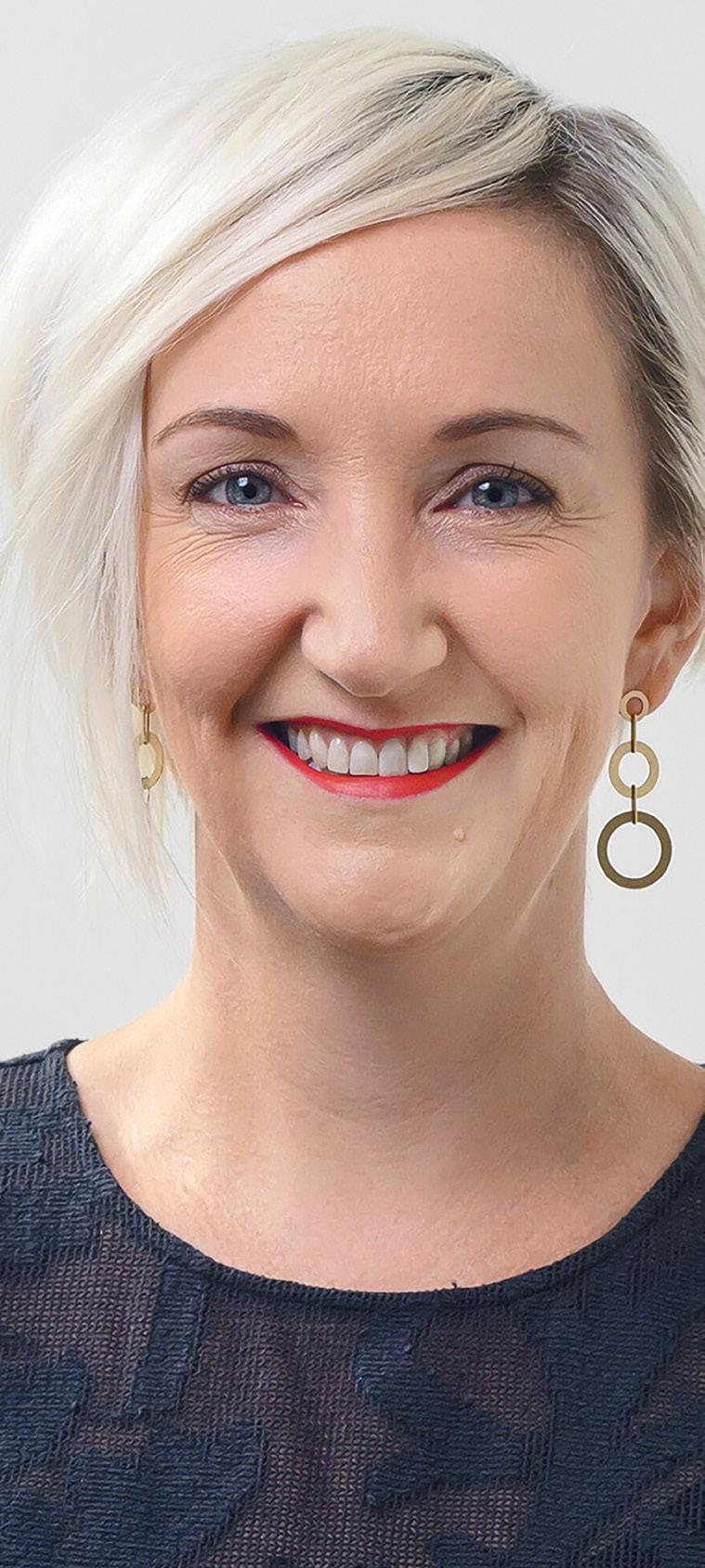
“What we've heard consistently in the exploration phase of the Act2 Project is that people are calling for change and they recognise how important and how urgent reimagining what we could look like is,” she says.
“So there is an urgent need for us to reimagine what the future of our Church
25
Continued P26
Jessica Hateley-Browne: “What I hope for is a healthy and sustainable Church.”
Directions outlined
should look like, and creating a better and more beautiful Uniting Church has absolutely been at the front of my mind as a steering committee member.
“It’s not about change for change’s sake, or for financial reasons, although, of course, financial aspects do come into it.
“This is about change because we want to be a better and more beautiful Uniting Church when we are participating in God's kingdom, responding to God's love, and unless we are doing that, and unless that is the ultimate outcome, the project won’t have achieved what we hoped for.”
While honesty has been at the centre of the consultation process, Andrew says that with that level of openness comes an opportunity to reimagine a better Uniting Church.
“One of the hopeful things I would say is that everywhere you go, someone's trying to do something new and someone's trying to do something differently,” he says.
“It's very under the radar and very small in most cases, so part of this is about asking, ‘well, how do we encourage and foster and recognise all that’ while also saying, ‘oh, there are some great things going on’, so the institutional life of our Church isn’t simply monopolised by the challenges that we are facing.”
As the 17th Assembly gathering looms large on the horizon, Jessica can see a process unfolding which sets up a future Uniting Church which benefits from, and has been blessed by, the wisdom and insight of its many and diverse members.
That’s why, she says, it has been an honour to be part of the Act2 Project’s Steering Committee.
“I would hope that the outcome from the creativity, courage and commitment that have all gone into this process is a more vibrant Uniting Church that is growing, is life-giving for those involved in it, and brings restoration and reconciliation to the world,” she says.
“What I hope for is a healthy and sustainable Church.”
Go to www.act2uca.com/act2report to read the ‘Act2: In response to God’s call’ report in full.
Following the first phase of the Act2 Project, four directions and four options have been put forward in the ‘Act2: In response to God’s call’ report for Uniting Church members to consider.
The four directions relate to workstream 1 on local communities of faith, and the four options relate to workstream 3 on governance and resourcing, and have been outlined below by the Act2 Project Steering Committee.
The idea of the directions is that they are a diverse ‘toolbox’ of things that could be drawn on, depending on local community needs, so not all of them may apply everywhere.
Direction 1
Encourage local communities of discipleship and mission
Seeks to encourage a focus on discipleship across the Uniting Church
We have heard that encouraging a focus discipleship needs to be a higher priority
Where we’re seeing life and health in our church, we’re seeing a consistent and structured approach to discipleship
Also encourages more shared mission – in some communities there are lots of different expressions in a shared space, for example congregations that are close together, schools, agencies, community partners – are there ways we can work together
Direction 2
Align with the vision of congregations in the Basis of Union
In the Basis of Union there is a clear and compelling vision of the life of congregations, which names five core things – word, sacrament, service, building each other up in love, sharing in the work of the wider church
In the regulations we have piled a whole lot of things on top of that vision, meaning that we have
started recognising congregations according to their capacity to meet the regulations, not these five core things
This direction just says let’s get back to the heart of the vision (which will definitely entail some regulation change)
Direction
3
Support fit for purpose governance arrangements
Local congregations are telling us they need more flexibility in how they govern their own life
The Regulations create the impression that the normative structure of a congregation is one Congregation with one Church Council, one minister, funded off the giving of members. Almost none of our congregations now fit that model
The capacity of congregations can vary drastically, some have a lot of energy and some have none, we need more flexibility and what we ask these communities to do needs to fit the local context
Presbyteries also need to be empowered and resourced to respond to the needs of local communities in a more flexible way
Direction
4
Recognise there is a time for everything this one is almost about the life cycle of our communities but particularly around endings and beginnings
we need simpler pathways for new communities to be birthed in the UCA, and we need to be better at helping congregations explore their future, including when they might close
These four directions will not alone renew our Church, rather they offer some ways of addressing the structural and systemic issues we have heard to try and provide space for communities to recentre their life on discipleship and mission.
26
From P25
Options These are four options for structural models we might adopt for the future
Option 1
Proposes a three council model – local, national, and a third hybrid council which integrates the councils we currently know as the Presbytery and Synod
Option 2
In this model the regional council (currently known as the Synod) is the strongest and takes on some of the other responsibilities that were performed by the Assembly. You have a very small national council, and area councils (currently known as Presbyteries) perform just two roles – oversight of people and communities
Option 3
In this model the area councils (currently known as Presbyteries) are the strongest, focusing on oversight of people, communities and the administration directly relating to local communities but not property. Property is managed by the regional council (Synod). In this model we imagine having only two very small regional councils, which have just one role, which is to manage property trusts
Option 4
Is the closest with the status quo but with the addition of a mechanism to intentionally distribute a joint pool of funds (administered by Synod and Assembly) to ensure equitable resourcing of ministry and mission across the UCA
You can find our summary of strengths and weaknesses in each of the four models in section 6 of the report: www.act2uca.com/act2report
27
27
Our faithful
Associate General Secretary Isabel Thomas Dobson will retire soon, bringing to a close a long and distinguished period of service with the Uniting Church in both Tasmania and Victoria. Andrew Humphries spoke to Isabel ahead of her September 30 retirement.
By Andrew Humphries
Thanks for the opportunity for a chat, Isabel. Can I start by asking how you are feeling ahead of your September 30 retirement?
At this stage I know it's coming and I feel it's just the right thing to do. But I’m focusing very much on all the things that are here waiting to be done, and retirement is still feeling a long way off.
So there are still some things to get through on your to-do list?
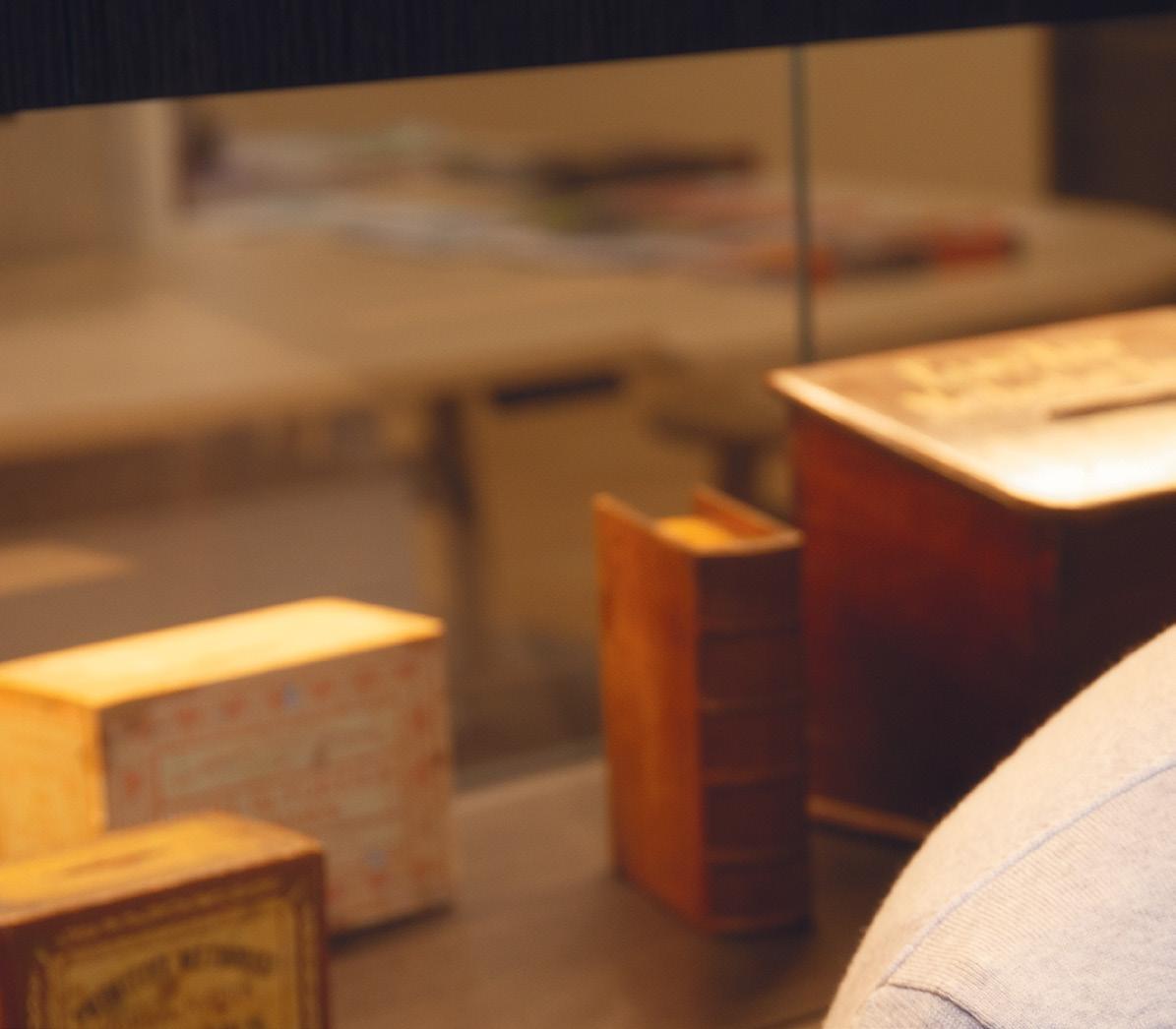
There's some things I want to finish, and there are many things I know I will not finish, but that's not affecting the timing of my departure. Part of the nature of the role and of ministry is that there is always so much that's unfinished, and so there is a sense of handing on to someone else. I guess one of the goals I've had as a parent, and in work, is always planned obsolescence, getting to a stage where life continues without me.
What prompted the decision?
I was appointed for a five-year term. That term was then renewed, and at the time I said I may not stay all of those next five years. That's the nature of ministry calls, that they're for a minimum and maximum and, probably 18 months ago, a conversation began about the various terms of office that were coming up among the senior leadership team, and I was clear at that point that no, I would not be seeking an extension, and so that brings me to the end of September.
Anything immediately on the horizon, after that?
We'll be packing up and relocating to Bendigo and we're giving ourselves 15 months or so to do that.
So is Bendigo where we start in terms of your childhood?
No, it was in Naring in northern Victoria.
Was yours a family of faith?
Oh yes, a very strong family of faith, over multiple generations. It was a small farming community and my father's family had been there since a whole group of Wesleyans left the goldfields and moved over at the time that land was being made available to smallholders. My mother's family’s journey was similar and about 20 miles away. So both of them, particularly my father's family, had a tradition of being local preachers. A couple of great uncles were ministers, and a great aunt spent 40 years in Fiji as a missionary teacher. My mother was also a strong person of faith. There were daily morning and evening Bible readings and prayers around the kitchen table. Probably one of my very early memories is sitting, watching a pipe organ being assembled to be put in the church after my father had brought some of it home on the back
28
Images: Carl Rainer
of a ute. Electronic organs were hitting Melbourne and churches were getting rid of their pipe organs and they had one to give away. Dad played the organ, so he took them up on the offer.
As you moved through childhood, was there that sense of faith as your anchor?
As a teenager you have to work out what are your values and yes, there was a wider circle of engagement in some youth camps and decision-making and owning a sense that for myself, I wanted to make faith a commitment.
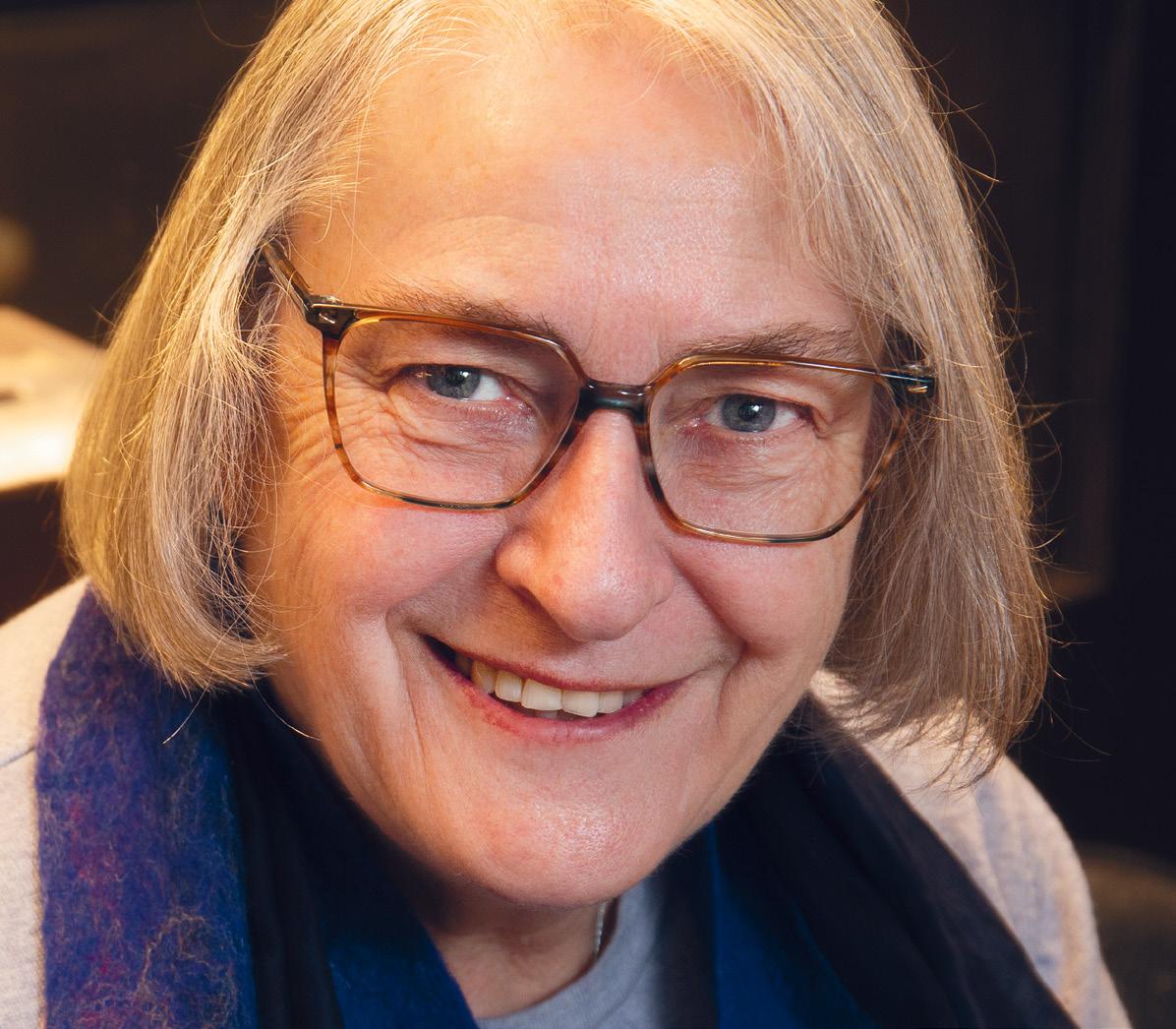
And you spoke of strong values, I would assume your parents held very strong and wonderful values that you inherited for want of a better word? Well, we probably need to backtrack a little bit because some of my family life gets a little bit complicated. I was four
when my mother died, but my father took that in his stride with his faith and normalised it in a sense, I guess, but there's been a sense from that time, that the wider church, the Numurkah church, and other people were looking out for me. At the time of my 21st birthday, I received gifts from people I barely knew, but they were my mother's friends, and they had been praying and caring for me, and that was part of being held in the wider love of the church. So when my mother wasn't there, and even when she was and she was ill, her sister had a major care role for me. Once mum died, my great-aunt, the one who'd been in Fiji, became my prime female carer for the next six months, because my grandfather also moved in because he was too much for her to care for, and so dad took on all that.
Did you or do you even still reflect on
how your mother's death might have shaped you?
Oh yes, but not only my mother's death, but the arrival of my stepmother, which is another really significant part of my story. Dad remarried when I was nearly seven and the person I called mum for the next 45 years, and three older sisters, moved in.
You would have had, I imagine, if circumstances had been different, some wonderful conversations with your mother?
I would've loved to have been able to do that.
So after school, your focus became teaching, didn’t it?
Yes, there weren’t many options for country kids and if we wanted to go on to further study, teaching or nursing were the options we were presented
29
Continued P30
with. And so in 1974 I came down to Melbourne and was fortunate to live in St. Hilda's College at Melbourne University. St. Hilda's and Queen’s College shared chapel services, and so I had a fascinating range of friends from that time, including two who went on to become theological lecturers.
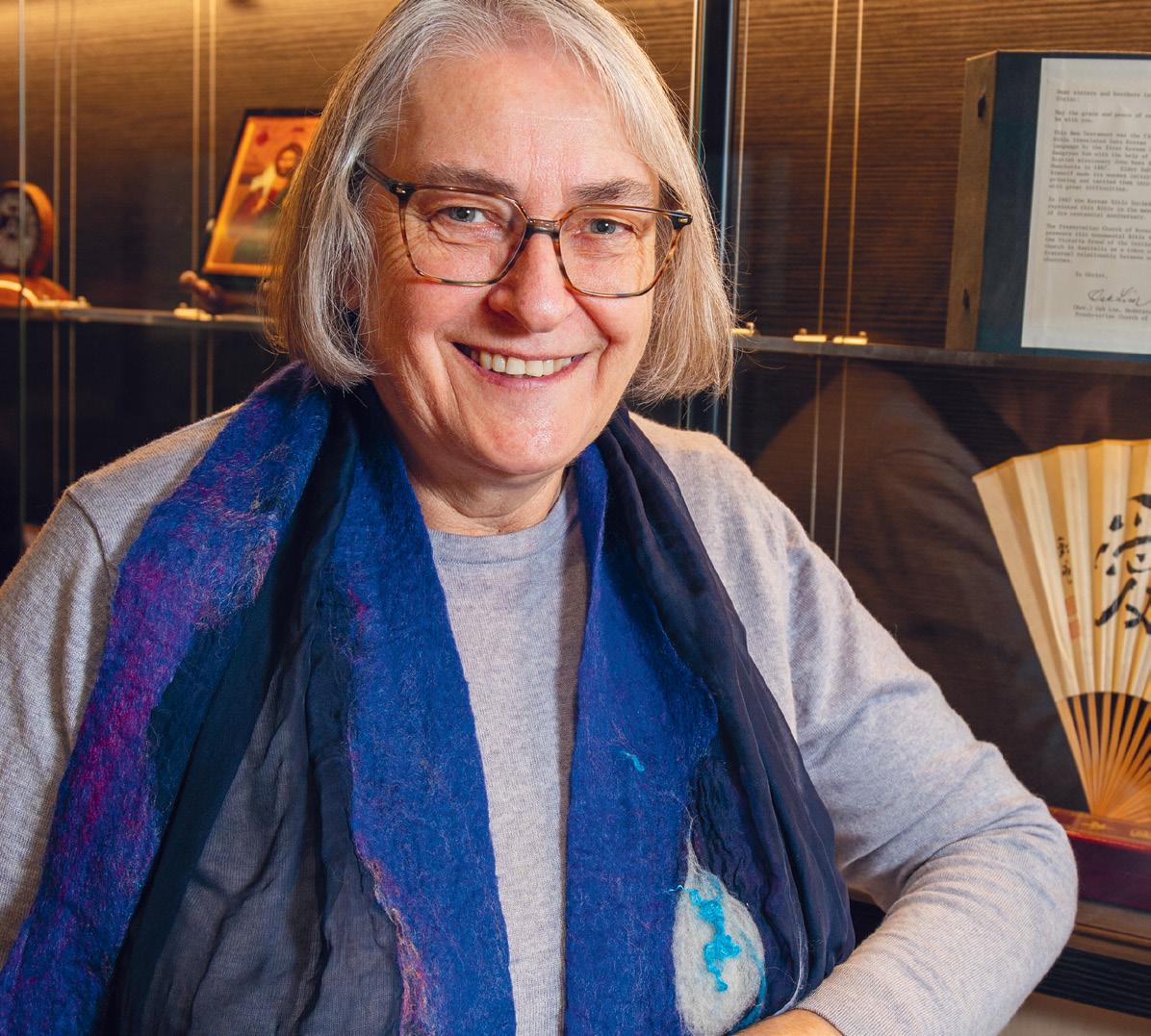
Tell me
about your teaching career?
Well, my teaching career was not particularly glorious. In my second year, I went on a school excursion and fell over most unspectacularly while rollerskating. No one saw it happen, but I managed to break both bones in my leg. So I then had quite a bit of time off after that, and the church at that point sent my husband Kevin off to Tasmania for his first ministry placement, and so I needed to resign from teaching in
Victoria. I couldn’t teach in Tasmania as they would not even send an application form to an out-of-state person. So one of the options presented by the then Commonwealth Employment Service was a job interview with a politician. So I spent a couple of years as an electoral assistant for Senator John Watson. It was a very interesting time. My degree was in history with politics, so I had a keen interest in politics. I had a great deal of respect for John and how he exercised his political career.
So amid all of this, how is your faith being sustained?
I was always a regular attender of worship and enjoyed fascinating conversations with Kevin, around what he was reading as he prepared for the two services each Sunday. I've always
expected to be engaged in the life of a congregation, not just turning up on Sunday. At this time I was hearing a call to discipleship, but never a call to ordained ministry. So it's that thoughtful reflection of, well, what is God calling me to do? How am I to live with integrity following the way of Jesus? Congregations are aware that ministers come and go, that ministers' spouses come and go, but the congregation has to keep on going. And I guess that then meant asking what’s available in terms of presbytery involvement. We're still talking the very earl y days of the Uniting Church, so there was vision and excitement in how things were being shaped in those times. So the first thing that I did beyond the congregation was join the Synod Standing Committee in Tasmania.
30
From P29
And you were Tasmanian Moderator from 1997-99, weren’t you?
Yes, out of the blue came a phone call telling me that I had been nominated as one of the Moderator-elect candidates. By that stage I was working with the Tasmanian Council of Churches, with a whole six years in the Mallee at Ouyen, and children in between, too.
What can you recall of that period as Moderator?
Oh, it was a fascinating time. I knew the congregations well, visited them and was clearly involved with their joys and difficulties, so it was a rich time.
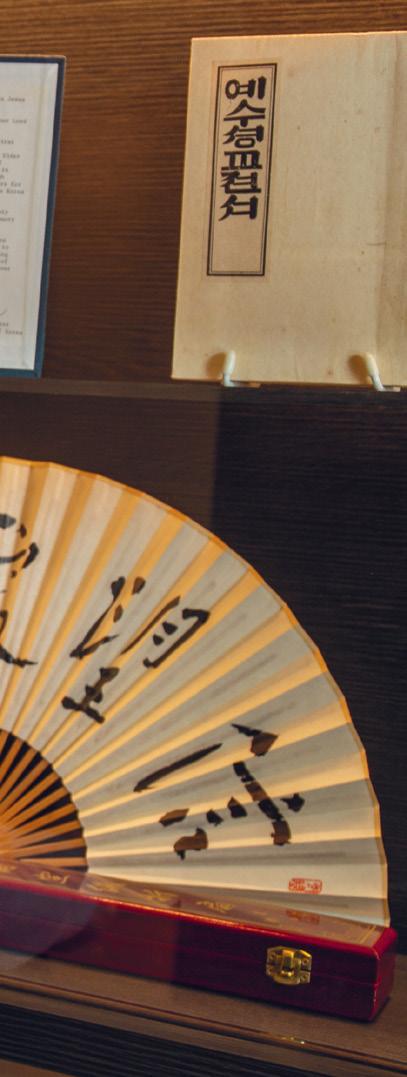
And so about a decade later, you become Moderator of what is now the Synod of Victoria and Tasmania? And I guess it's the same thing, you're
not aware you've been nominated, but you're comfortable with being nominated?
Comfortable is not the word I would've used, but I was open to listening to the church and to exploring it.
What did you enjoy about the role? The engagement with people and seeing the hugely different ways in which individuals and congregations, communities and agencies go about being light and salt in their communities?
What about the challenges?
Oh, there were multiple challenges. It was a particularly bumpy time for the Synod and I think part of it was the whole church has been, from the Christendom model being the centre of society, we had known and been saying for decades that that wasn't the place where we should be, we needed to be on the margins, but the experience of moving from the centre to the margins is not a comfortable one for many.
There was controversy around the closure of Acacia College at this time, wasn’t there?
That was an extremely complex and painful situation around the dreams that had been held for the college as a Presbytery initiative. While I was Moderator the Standing Committee had to say ‘no, we can’t keep financing this’, and it was my job to announce to an entire school staff of about 90 that they would not have jobs in six weeks' time. Then, an hour later, having to tell a very large gathering of parents that their children would not have a school to go to in six weeks' time is not something that I would wish on anyone.
How do you steel yourself in times like that?
It’s a case of putting one foot in front of the other and knowing that these decisions are part of the role, and that this is what is required. The decision had to be made and it was my role to convey that and I needed to do that as clearly and as well as I could. One of the things
about being Moderator is that lots and lots of people pray for you and that does make a difference.
So you sensed that level of support? Yes, but I also felt plenty of isolation and plenty of other emotions as well.
While all this was happening, there was a great deal of controversy involving Methodist Ladies College and the decision of its board to sack principal Rosa Storelli, wasn’t there? Yes, the Acacia College and MLC issues were happening simultaneously. The board had decided to end Rosa’s tenure, she then read the school’s constitution and saw that the Moderator was the ‘Visitor of the school’ and so called on me to act to have the decision overturned. I had a crash course in what several centuries of English legal tradition meant in terms of the powers given to ‘The Visitor’, which are extraordinary, and so yes, again, this was a responsibility that fell to me. I couldn’t walk away from it. And so we had vigorous engagement and outcomes that probably didn't please many people at the time. The number of churches, schools, universities and hospitals Australia-wide and across many denominations that have changed their constitutions to remove ‘The Visitor’ after that is probably one of my more unintentional and unexpected legacies.
All of this brought with it some media attention, didn’t it? Yes it did, and that was pretty challenging. Media attention, if it is given in a muted way with balanced reporting is one thing, but media attention in the heat of the moment when you don’t recognise what’s being reported isn't much fun. It's ironic that so much of my time as Moderator was related to school issues, considering I was someone who had such a firm commitment to government education.
So, what makes a good Moderator? There's something strange in that somehow in the processes of discernment what happens is that the
31
Continued P32
person there does have the gifts and graces for what is needed at the time. Some of that is by the graces and miracle of the Holy Spirit and some of it is through the gift of the whole church and the system we have, and there are others around that shape and provide that encouragement needed to seek God's way forward.
After your term as Moderator there was a relatively short break before you took on the role of Associate General Secretary. How did that come about?
Well, again that was someone else identifying gifts I was probably slower to identify in myself. As a layperson, when you conclude a role there is no expectation of the church finding ongoing work for you in a way in which as a Minister there is that mutual obligation of continuing, so I had no idea what would follow when I finished. My assumption was it would mean Kevin would be free to listen for a call to some nice regional spot again, and we could escape Melbourne. However, before I finished as Moderator, the Placements Committee had put my name against the Associate General Secretary position, and I could see that it would be a challenging, fulfilling opportunity.
What’s the essence of the ASG role?
It’s to support the General Secretary how ever that is needed, but particularly through some of the committees and in minister-related conduct and complaints matters - my predecessor used to summarise the role as ‘HR for God’! It’s to provide advice and pastoral guidance to presbyteries, congregations and ministers. I get lots of questions about the regulations, helping people find their way around them and enabling them to make decisions with confidence. I’ve had oversight of the Office of the Gen Sec and the Culture of Safety teams. An exciting new dimension was after the Major Strategic Review when two new subcommittees of Standing Committee were established. I became the Executive Secretary of the Ministry and Mission Committee. That has a very wide brief,
but it gives such a broad vision of what is and can happen within the life of eLM, presbyteries and our congregations and opportunities for the Synod to work with those possibilities and resource them.
What have you enjoyed about it? I love being able to provide context and support for people in their ministry roles and, particularly in the first few years in the role, I had a direct involvement as secretary of the Placements Committee, and that built on what had already been 12 years as member, chairperson, and Moderator. So I knew that committee inside out and its role in offering the support to allow others to get on with the hands-on work of the ministry.
What have been the major challenges? Conflicts in congregations and with ministers and times when it doesn’t seem as if we are living up to our values and as people of grace and goodwill. Issues of historic child abuse are excruciatingly damaging. I have had the privilege and enormous responsibility of listening to survivors’ stories, and apologising to them on behalf of the Church. It’s hard work, but so important to survivors, and to us as Church in what we learn and in working to keep all people safe. We can never be complacent.
And I have to say Covid-19, as ‘Crisis Manager’ was added to my Ministry Description in very early 2020. I co-ordinated the team that had to transition the whole Synod Ministry and Operations to working from home in the space of a few days, as well as advising/encouraging/cajoling congregations to meet the stringent and changing conditions required of them, across two states, plus our sliver of NSW. We met daily initially, then weekly. Jobkeeper, then work permits were enormous administrative challenges. I’m still amazed and grateful at how staff worked together so well in such personally challenging times. Ministers and congregations were making similar efforts and changes, mostly with goodwill. It was such an unprecedented time, and so tough
when churches couldn’t allow people to gather in person. I checked every one of the hundreds if not thousands of requests for workers’ permits, as my signature was the one linked to the huge financial penalties possible for breaches of the conditions. I also proof read every one of the 153 FAQs the Comms team produced. It was an unforgettable time for the whole of society.
How has the Uniting Church changed since its inception in 1977?
I don't think anyone fully recognised the rapidity with which society would change and the church's role would change. So that period is almost too long to look at, given the changes that have happened even in this last decade. I think we are largely over the hump of needing to convince people that some changes have to be made to how we operate. It is so obvious to many congregations that their size, questions around compliance, maintenance, and the sheer uncomfortableness of their buildings are saying we need to do things differently. I don't think you're having to preach that message now. You just have to help people in those stages and say, ‘okay, practically how do we put this in place?’ I think that's one of the really big transitions in this decade.
How is the Uniting Church placed for the future?
We will have to be nimble and we'll have to continue to make some really difficult decisions, but with people of faith that shouldn't be a deterrent to us. Our focus on wanting to share the good news of the gospel, the difference that living Jesus' way can make, that should enable us to do what we think is both unpalatable or really difficult.
How has your faith sustained you throughout your life?
It's sort of an inherent part of me, and I recognise how fortunate I am in that. For some people it is a huge struggle and people have deep faith too, but for me it's the air that I breathe, and I'm aware that God is present, enabling and sustaining.
32
From P31
WE BELONG TO THEDAY

Volunteers needed
Expressions of interest are being sought from people interested in volunteering for Synod 2023, November 18-21 at Box Hill Town Hall. Duties might include assisting members in and out of the building, to navigate the meeting app log ins, providing directions and answering questions, helping set up the Hall, or helping with admin. We’re looking for people who are over 18, are COVID-vaccinated, hold a Working With Children Check, have good attention to detail, great people-skills and plenty of enthusiasm, patience and understanding.


If this sounds like you, put your hand up and send an email to Sarah Manase at sarah.manase@victas.uca.org.au by September 29.

33
here
Caption goes
Image: Carl Rainer
1 Th essa lo ni an s 5: 8
230613
History at her fingertips
By Andrew Humphries
When Wesley Hobart Museum coordinator Rev Karen Woolford wanders through the building, she is acutely aware that she is within touching distance of so much Tasmanian history. It’s a history which dates back to 1658 and, as the keeper of the secrets of the museum and small library which forms part of it, Karen recognises that her job is a pretty special one.
After all, the museum and library have a fascinating story to tell about Hobart,
and indeed, the whole of Tasmania.
“The museum itself is nearly 100 years old and was started by the trustees of the Wesley Methodist Church as a way of preserving the artefacts that were brought out from England, and gathered during colonial times in Tasmania,” Karen says.
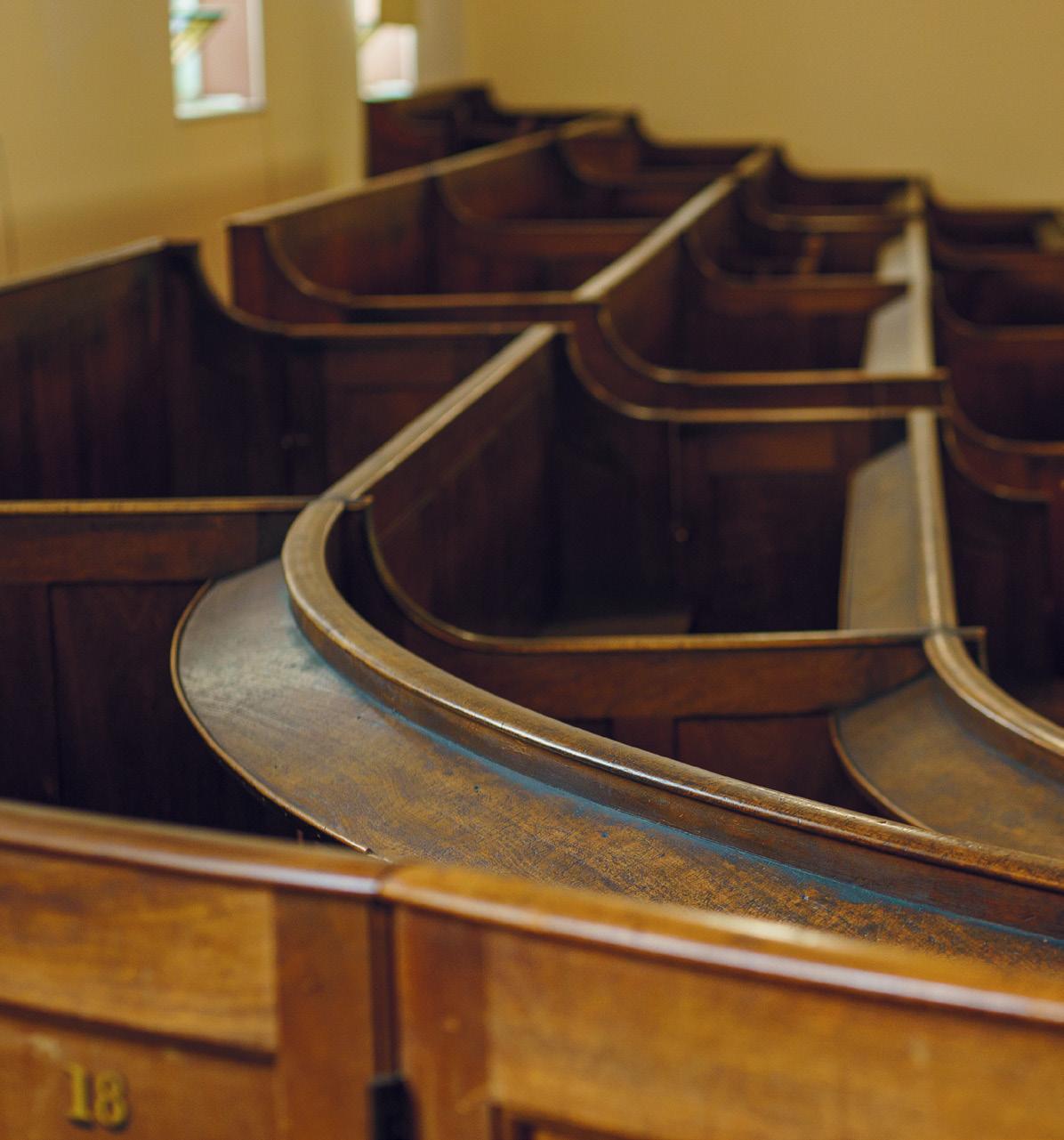
“Lady Alice Jones, the husband of IXL jam founder Sir Henry Jones, paid for a building to be attached to Wesley Church as a museum, and the Haywood family,
famous for their biscuits, provided the furnishings.”
As a child, Sir Henry had been heavily influenced by his mother’s devout Wesleyan faith.
The museum and library feature artefacts and books hundreds of years old, with the oldest item a book which dates from 1658.
“Those people of Wesleyan faith who came out to Tasmania brought with them important books and other items
34
of English Methodism,” Karen says.
“Because Hobart town was settled after Sydney, it became a sailing route to New Zealand and the South Pacific, so we also have items from that region, particularly Tonga and Fiji.
“It’s certainly a museum and library with a rich and varied history.”
And when Karen has time to wander through the building, it’s that book from 1658 which invariably grabs her attention.
“It’s called ‘The revelation of Jesus Christ unto John Moone in the fourth moneth, in the year 1658’, and John Moone was a Quaker who was quite prolific in his utterances,” she says.
“There are only 16 copies of the book registered throughout the world and it’s beautifully written.
“When you flick through it you find a number of pencil markings which suggest it was used as research for sermons by various Ministers.
“It gives you a wonderful insight into what was happening in those times.”
And while every museum contains artefacts with their own story to tell, it’s the Wesley Hobart’s “lost and found” section that Karen loves to explore the most.
The fact the museum is connected to the Wesley Church means there is a treasure trove of items which have been either lost or donated by worshippers over the years, providing a wonderful
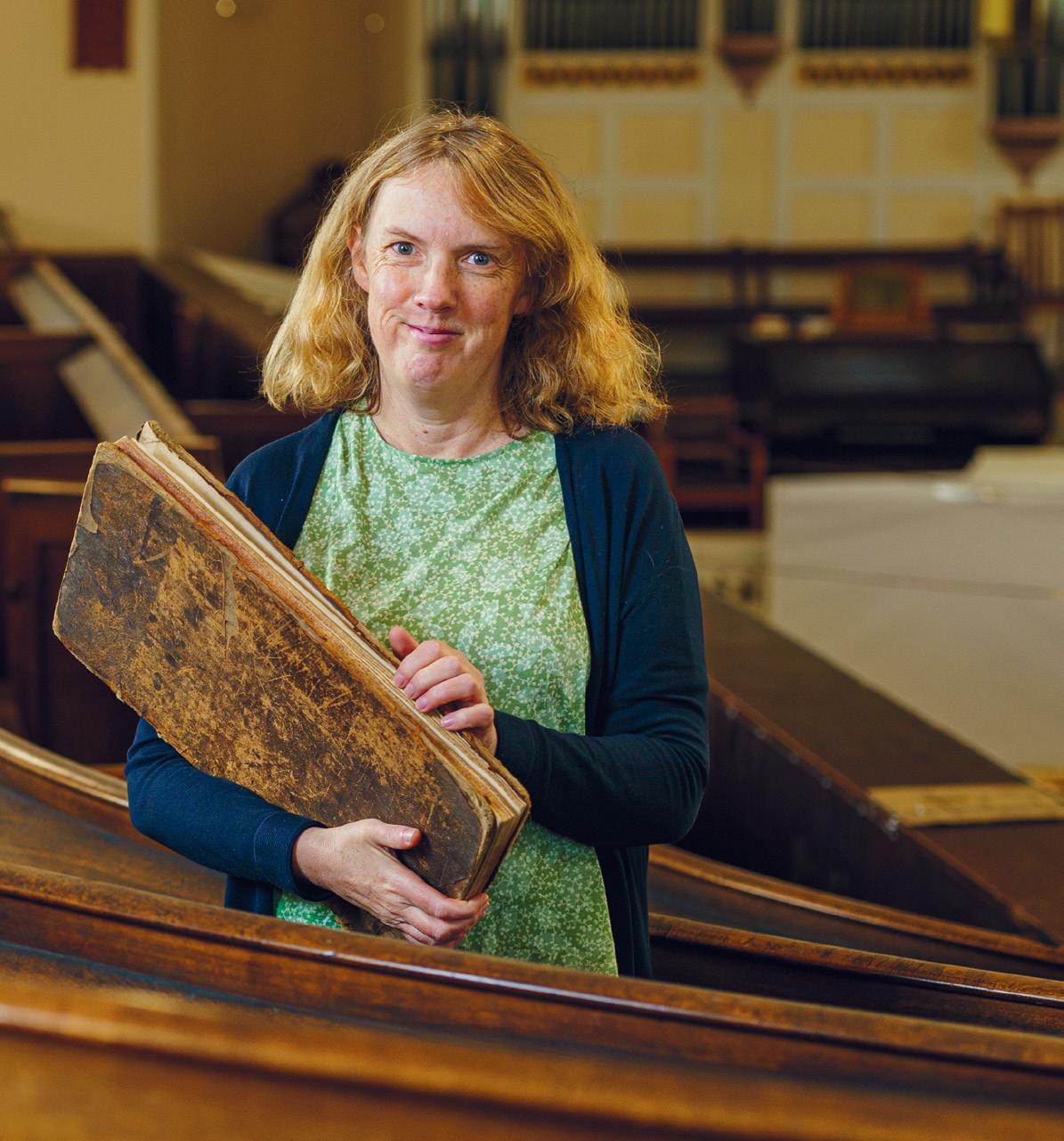
35
Continued P36
Wesley Hobart Museum coordinator Rev Karen Woolford is the keeper of a large part of Tasmania’s history.
snapshot of the people who have gathered there in faith over many generations.
“In every church people leave behind personal Bibles and hymn books, with their names written in them, so we have hundreds of Bibles, hymn books and music here,” Karen says. “We’ve only kept things with people’s signatures in them, even little things like original pocket hymn books which people might have kept in their breast pocket, or finger Bibles. So we’ve got the largest collection of Bibles in Tasmania.”
If the museum’s walls could talk, they would also tell us of the rich history of what is generally considered to be Australia’s first public lending library.
An ‘Australian Library Journal’ article
library committee on August 25, 1845 was to “remove books to the small vestry”.
While the bulk of the library’s collection is from the 19th Century, it contains John Moone’s 1658 book, as well as a collection of editions of ‘The Methodist Magazine’ dating from 1784.
Karen says at the last count there were 741 books in the library and, while they can no longer be borrowed, they are often used as reference material and for research purposes.
“The library itself hasn’t been used since around the late 1800s, but all of the books were stored in the vestry and are still used,” she says. "People come in often and use them for research and I get calls from around the world from
written by Patricia Durrant in 1971 tells us that the library was founded on September 19, 1825 in “the excellent vestry belonging to the new chapel”.
It was founded by Rev Benjamin and Deborah Carvosso, with Benjamin donating 50 of his own books towards it. Reports from the time suggest that Benjamin was forced at times to defend the general nature of the books selected.
“Man must be surveyed comprehensively, and the whole of his existence must be taken into account,” he is reported as saying.
“And further, science will be regarded, but it will be regarded only as the handmaid of religion.”
So preference was given to religious and moral books, with a quarterly meeting to decide on the proper titles to be admitted.
But by November 1844 there were four other public libraries in Hobart, meaning the Wesley Library received less support, with only 81 books issued for borrowing in the previous year.
The last entry in the minutes of the
people wanting material in them. We see ourselves very much as a place of research.”
Even today, the museum remains an important part of the life of Tasmania and Karen is regularly contacted by people wanting to make use of it.
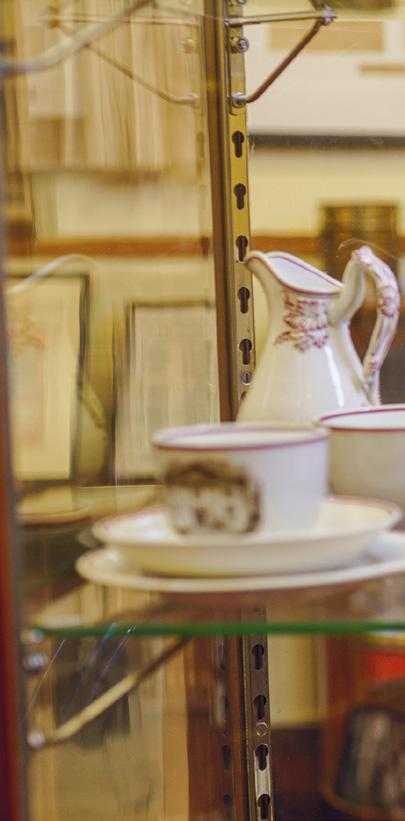
She was recently approached by descendants of a family with links to the World Heritage-listed Cascades Female Factory for convict women in Hobart, with a museum event organised to mark the family’s 200th anniversary reunion.
“The museum is seen by so many people as such an important of Tasmanian history,” Karen says. “It does feel like we are telling an important story and bringing people to life.”
It’s not hard to understand why Karen feels immensely fortunate and privileged to have oversight of the museum and library.
“It’s wonderful to be able to trace our history, and church’s history, through all of this,” she says. “I do feel quite blessed to think we are custodians of something that will outlast us all.”
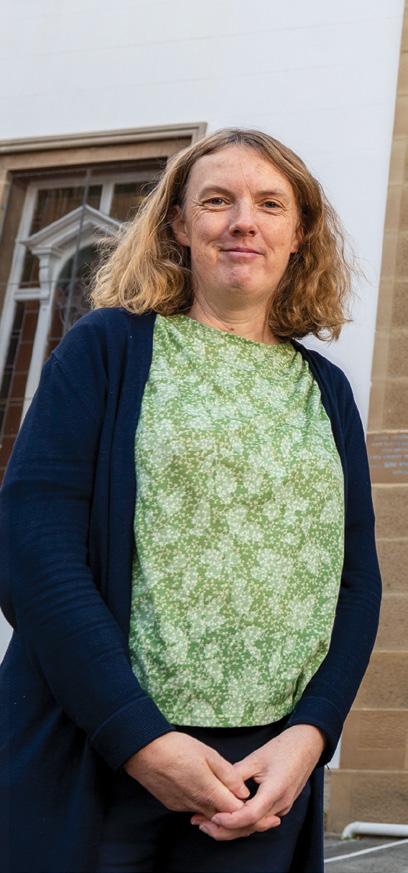
36
From P35
"It’s wonderful to be able to trace our history … I do feel quite blessed to think we are custodians of something that will outlast us all."
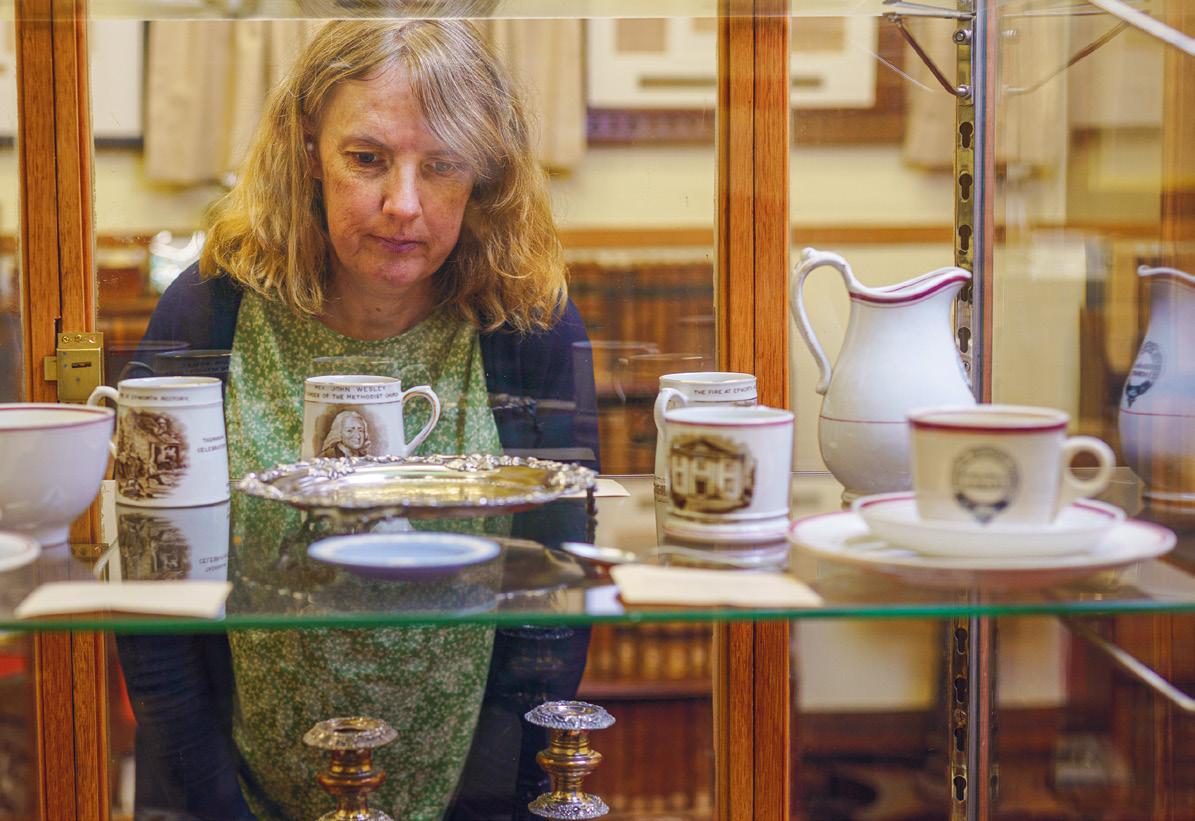
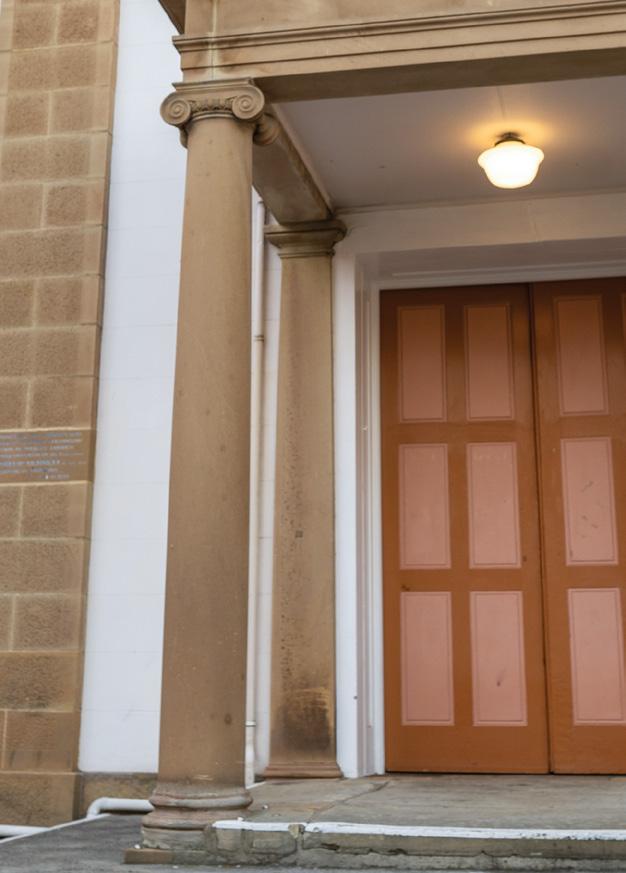
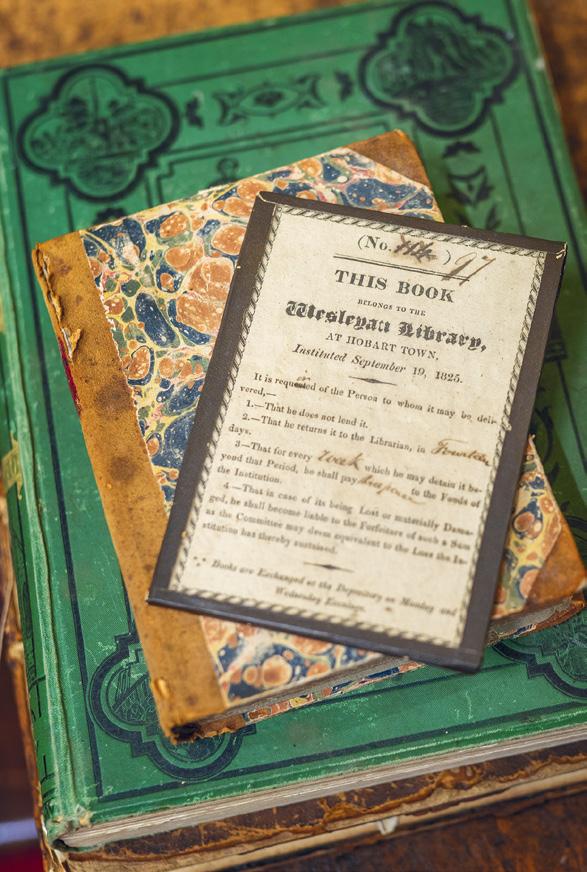
Lachie's career was a class act
By Andrew Humphries
It’s fair to say that life presents many challenges when it comes to parenting. After all, there is no ‘to-do’ manual and it’s a constant case of learning on the job.
But what about those times when your child or children are at school and you have no real say in what is happening to them during that time.
The hope is, of course, that the people guiding their learning have their best interests and wellbeing at heart.
If so, it’s likely their teacher is someone like Lachie Wright, a shining light in education at Scotch Oakburn College in Launceston.
When we talk about inspirational teachers, Lachie certainly fits the bill and, as he retired in June, he was honoured for his 40 years of service to Scotch Oakburn as Head of Junior School.
As a former student, himself, Lachie had already made a substantial mark there as college captain in the 1960s, before his return in 1983 as Head of Junior School.
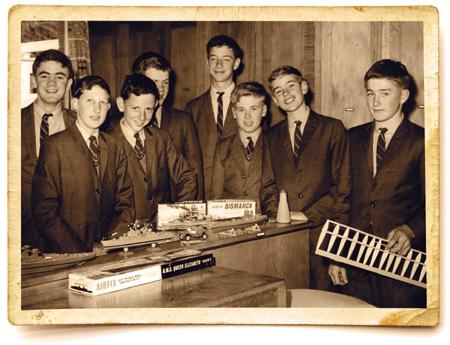
While Lachie appears far too modest to blow his own trumpet, there is no doubt about the significant and positive influence he has had over literally thousands of students in his time as Head of Junior College. In reflecting on his service at Scotch Oakburn, which has enjoyed strong formal and informal links to the Uniting Church over many years, Lachie admitted that teaching was one of the few professions in which one lay awake at night thinking about other
people’s children. “There is certainly a weight of responsibility around the role of a teacher,” he says.
“You are always thinking about what might catch and engage a particular child’s interest, particularly one that might just require a little bit of guidance or a nudge to turn them around and to start believing in themselves.”
For Lachie, satisfaction in his role comes through helping students reach their full potential.
me it’s been more of a calling or a quest, and it’s something that you have to love doing and want to do.”
Make no mistake, though, a caring teacher can have a lifelong positive impact on a student, a fact Lachie is well aware of as he reflects on some of the many students who have gone on to achieve wonderful things.
“One example is a young girl in my very first class here in 1983,” Lachie recalls.
“Last year she made contact with the school and asked if she could come back and have a look around.
“She now lives in Portland, Oregon and is an executive with Nike, an obviously exciting and high-powered job, but she is just one example of someone who has gone on to great things.
“Another young student told me some years ago that he didn’t need to do much in the way of schoolwork because he was going to become a racing car driver.
“Well, it’s obviously the students, and being able to work with them and help them, that I enjoy so much about what I do,” he says.
“It’s abut getting to know the students, building relationships with them and putting them in a place where they know that they belong, are valued and are important.
“If students know that you care, they are probably going to enjoy learning.
“I don’t see it as just a job, though, for
“He went on to be a top NASCAR driver in the US and touring car driver here in Australia.
“They are two examples of what I see as our work helping to lay the foundation for students to realise their dreams.”
Like the Uniting Church, a strong set of values drives Lachie and Scotch Oakburn in ensuring that each student is given every possible advantage to succeed.
“We are very heavily values-based and, while we modify those from time to time, values like compassion, respect, responsibility, grace and humility have
38
always been prominent,” Lachie says.
And while teaching has changed over the years, some of the fundamentals still apply, he says.
“Forty years ago it was about delivering a curriculum and content and doing our best to keep children on the straight and narrow, whereas now there is a lot more recognition about the important of students having a voice and agency in the whole process,” he says.
“It’s about recognising that learners do the learning, and it’s not about teachers forcing the learning on to them.
“It’s about guiding, coaching and mentoring, rather than just delivering content.
“It’s about allowing children to build their traits and attributes as learners, and helping them enjoy a love of learning.”
It’s been a wonderful and rewarding career for Lachie, who has seen teaching change significantly over his five decades at Scotch Oakburn.
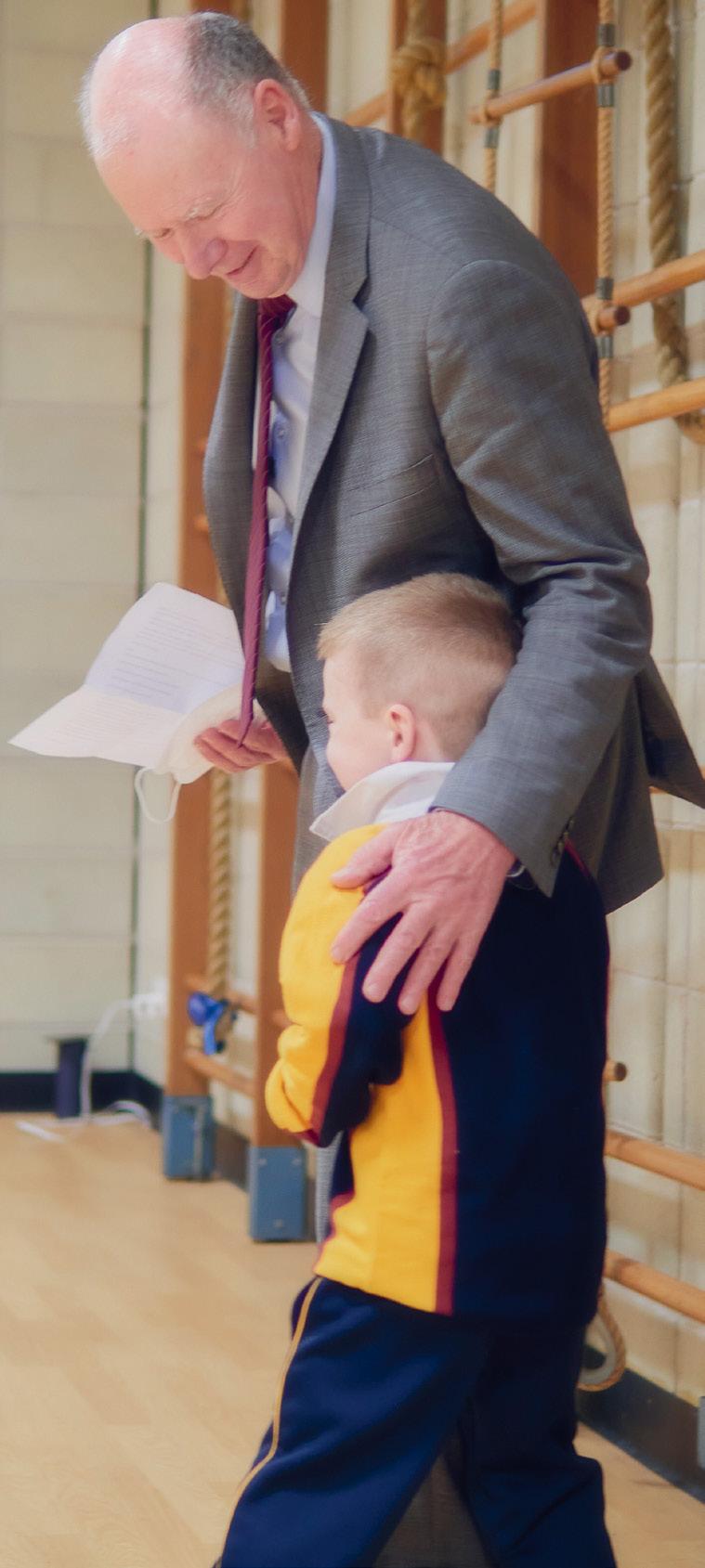
“It’s been a pretty exciting journey around innovation and change,” he says.
“The growth of the school itself has been a pretty big change, from 14 teachers, two learning assistants and about 200 students when I started, to about 50 teachers and 600 students today.
“We frequently hear that the school is viewed very positively in the community and is considered a very inclusive one.”
Much of that is no doubt due to the inspirational teacher who has cared for and nurtured Scotch Oakburn students since 1983.
39
Lachie Wright and grandson Henry on Father’s Day last year. Inset left: Lachie (third from left) as a boarder at Scotch Oakburn College in 1963.

40 Uniting is the community services organisation of the Uniting Church in Victoria and Tasmania. A small sacrifice can make a big difference. Put aside the cost of a coffee each week from 1 October 2023 until Shrove Tuesday, 13 February 2024, to help people in crisis in your community. Learn more 1800 668 426 unitingvictas.org.au/coffee-cup-challenge Join the Coffee Cup Challenge Register today

 Reverend David Fotheringham Moderator Vic Tas Synod
Reverend David Fotheringham Moderator Vic Tas Synod













 Dr Jacob Atem and Southern Sudan Healthcare Organisation co-founder Lual Deng Awan in South Sudan last year.
Dr Jacob Atem and Southern Sudan Healthcare Organisation co-founder Lual Deng Awan in South Sudan last year.























